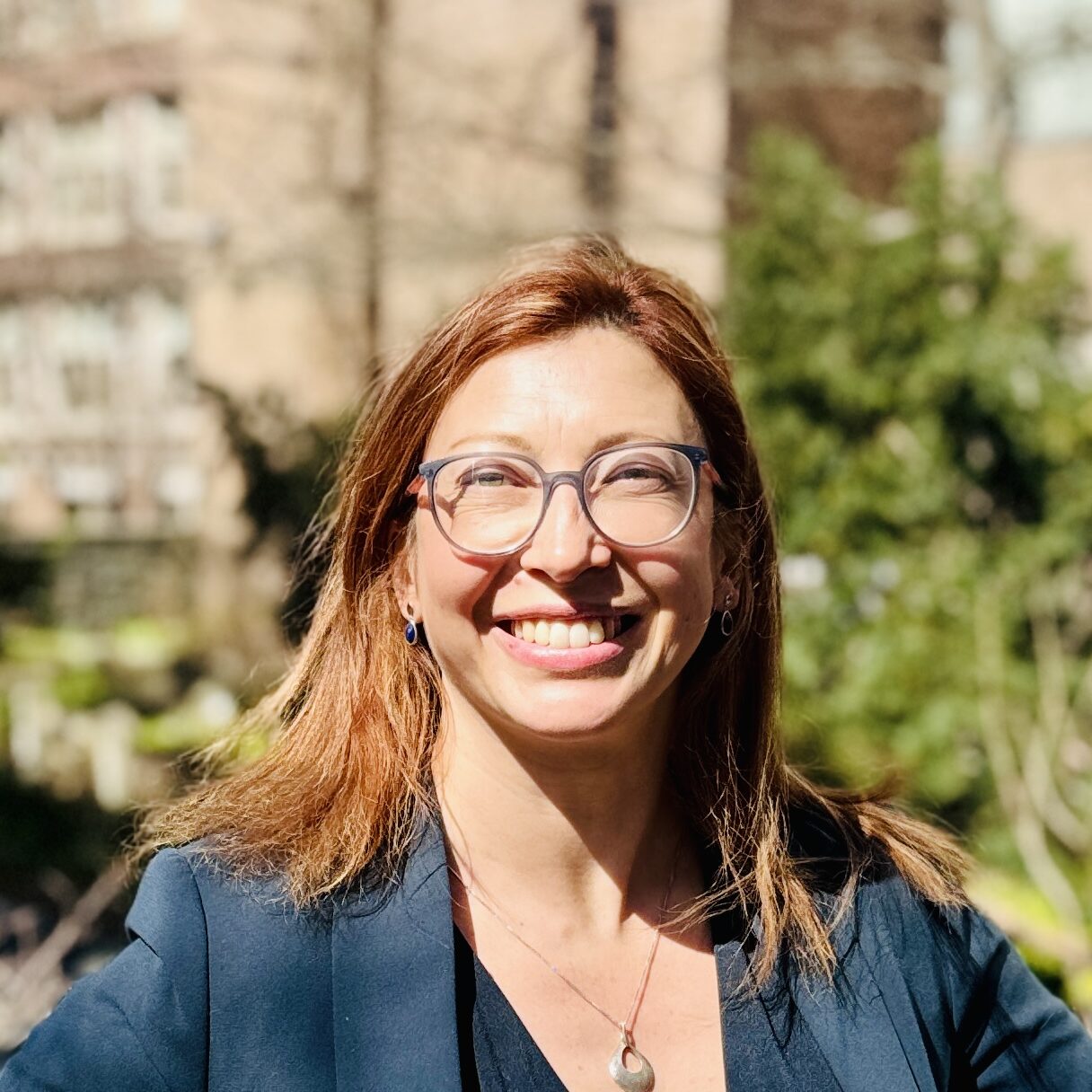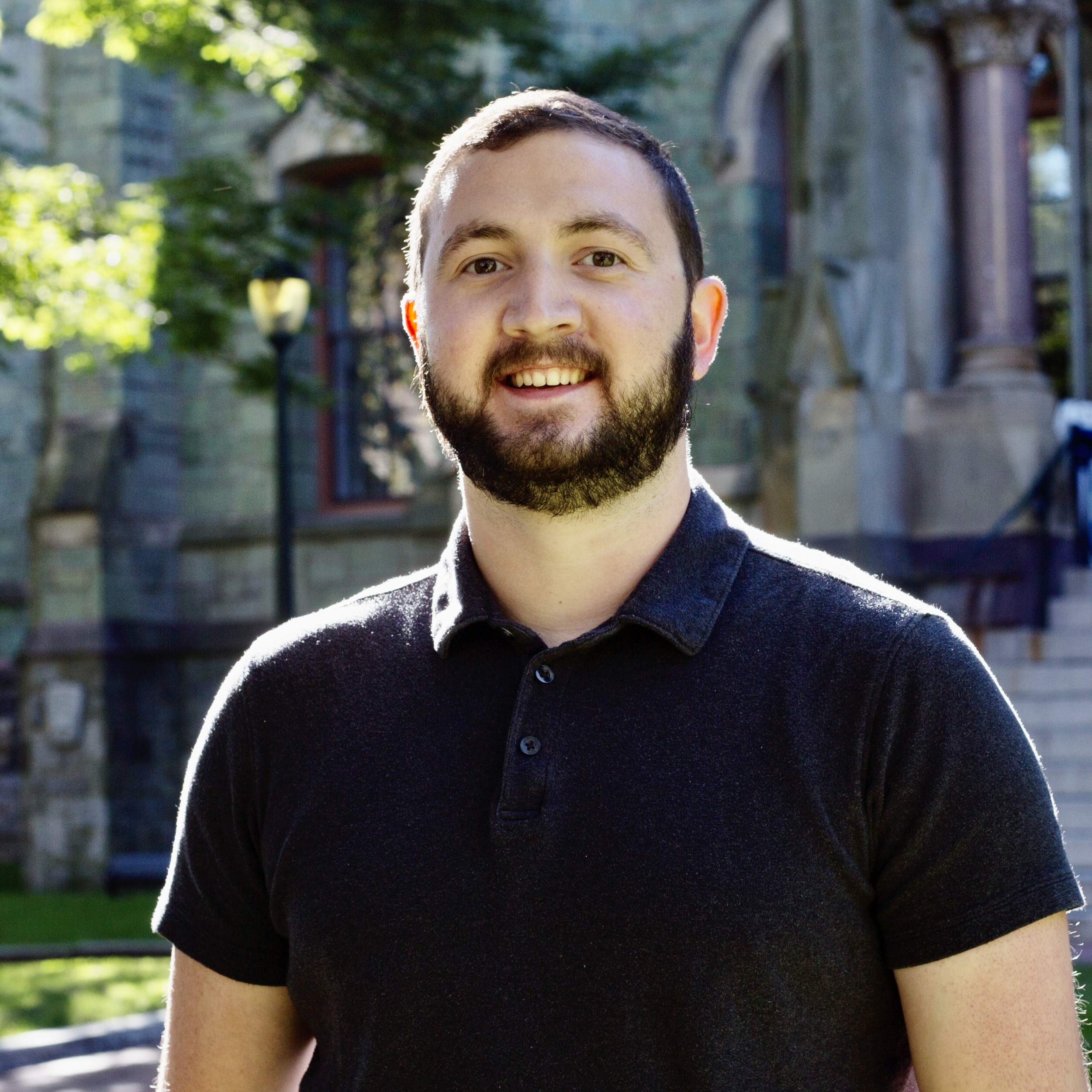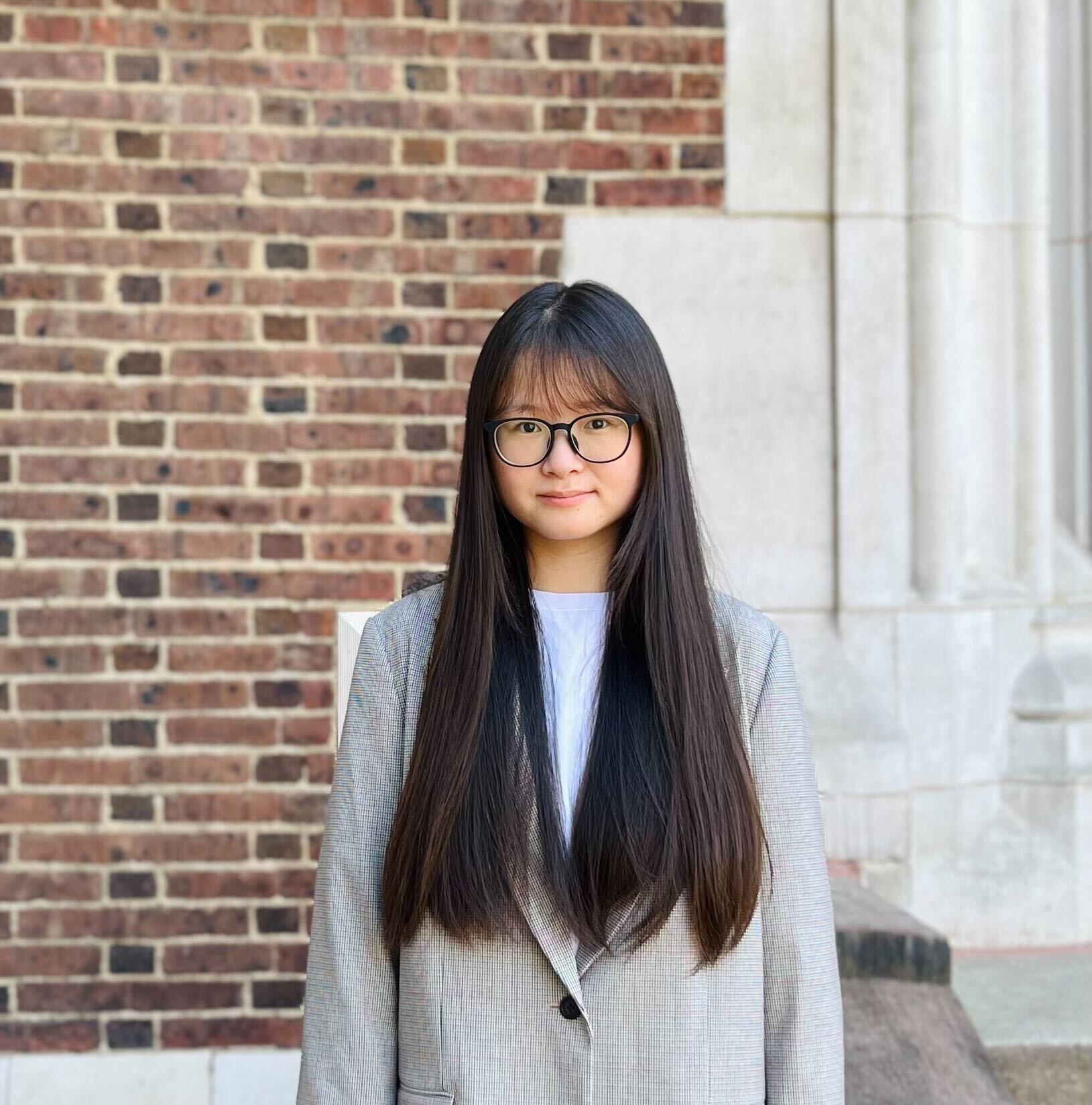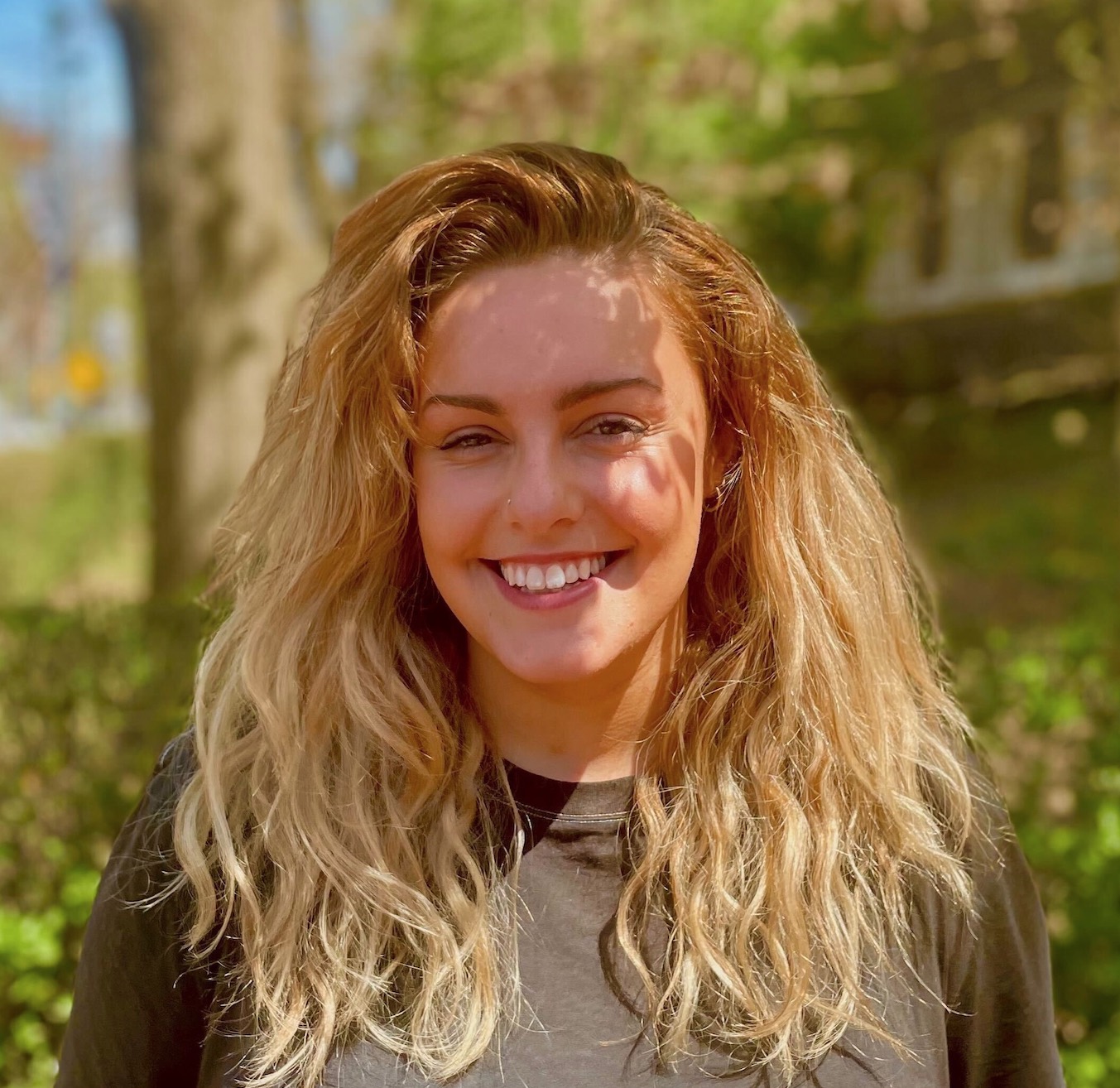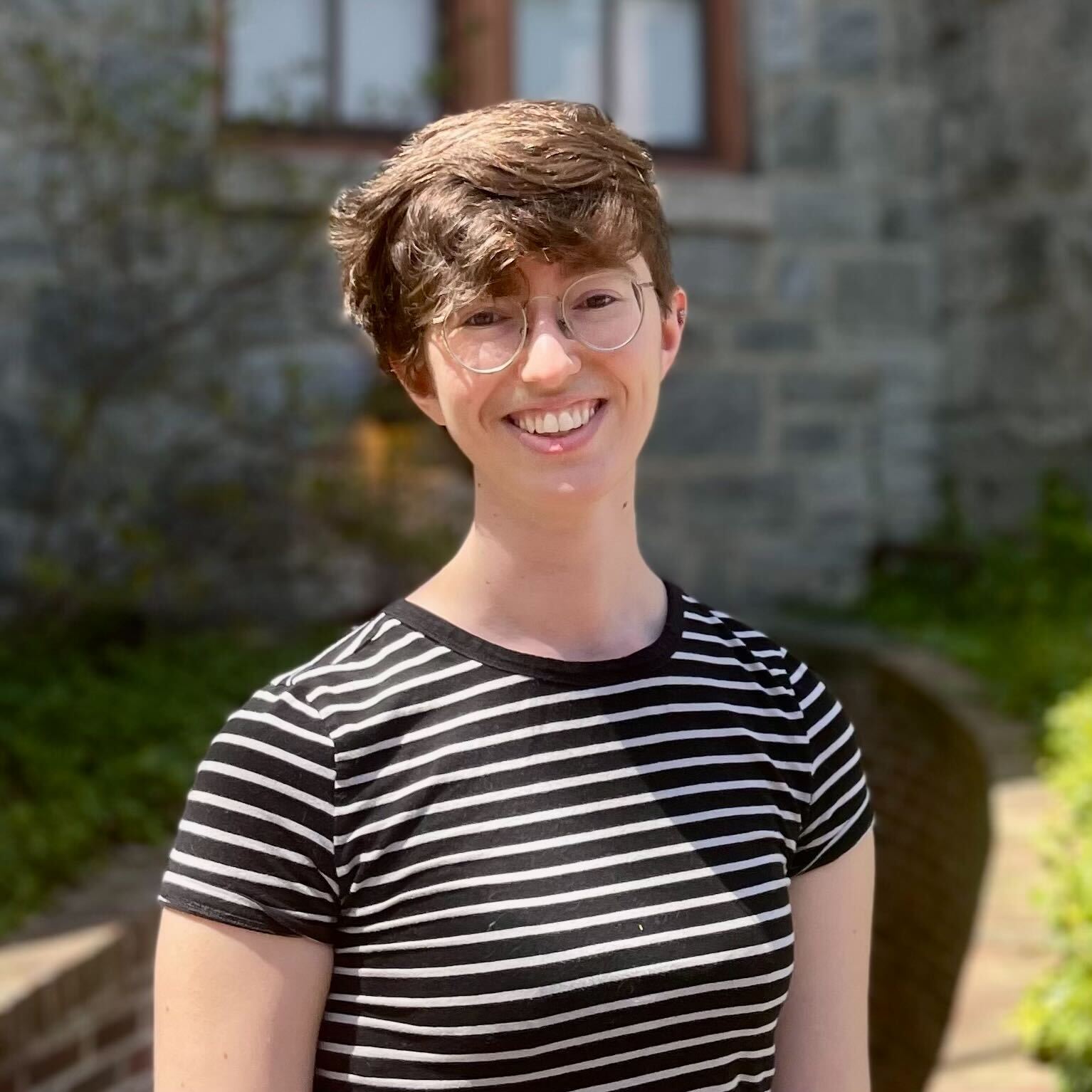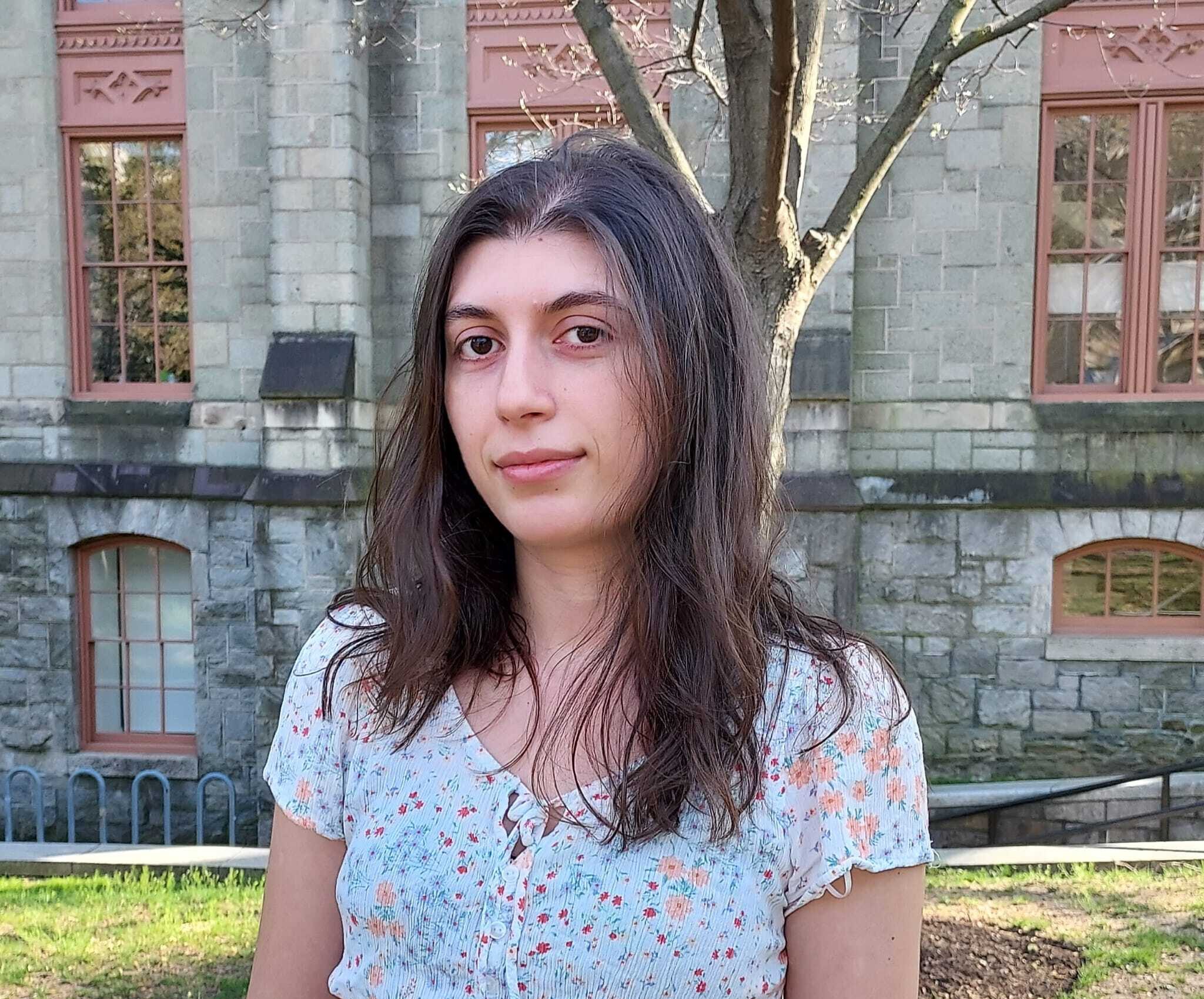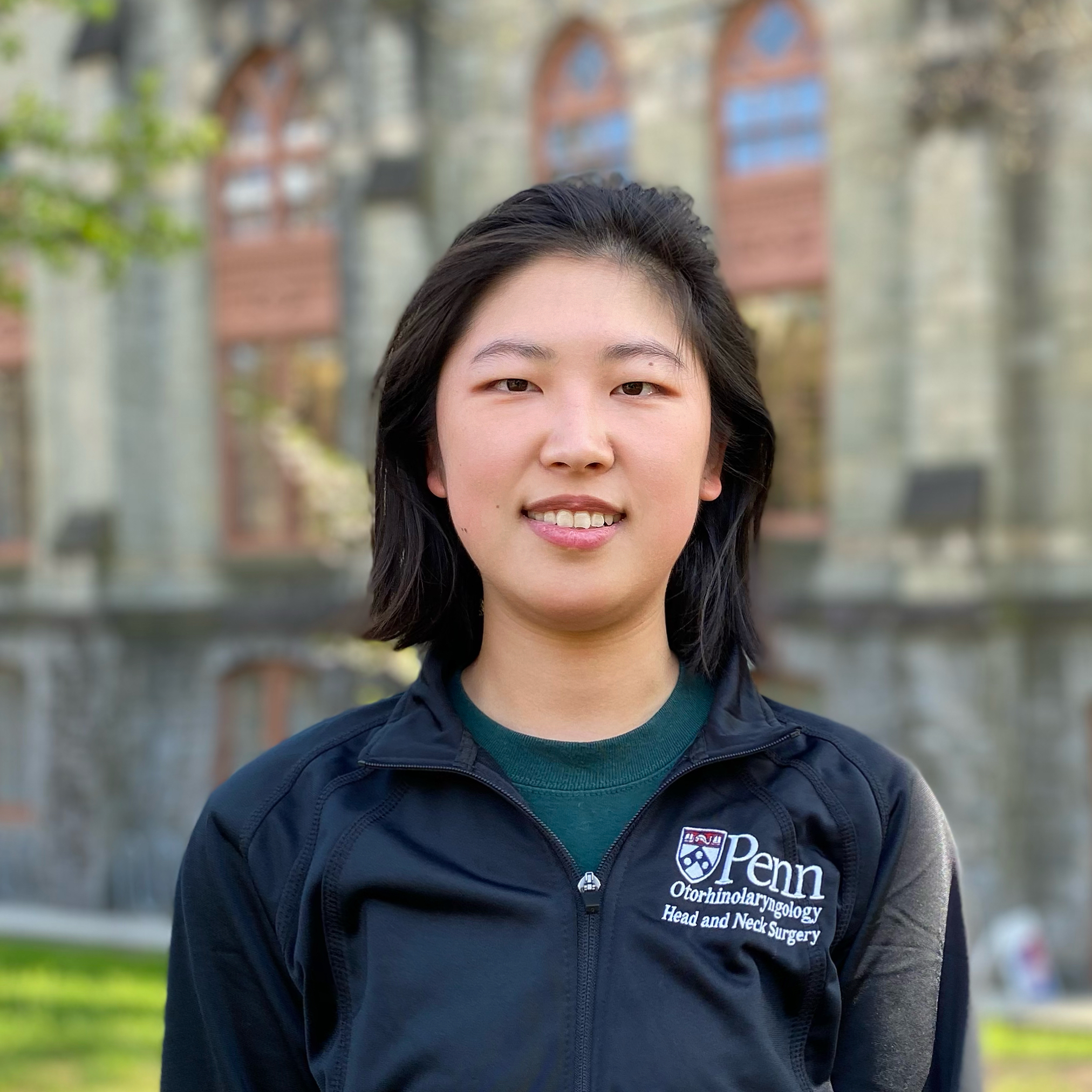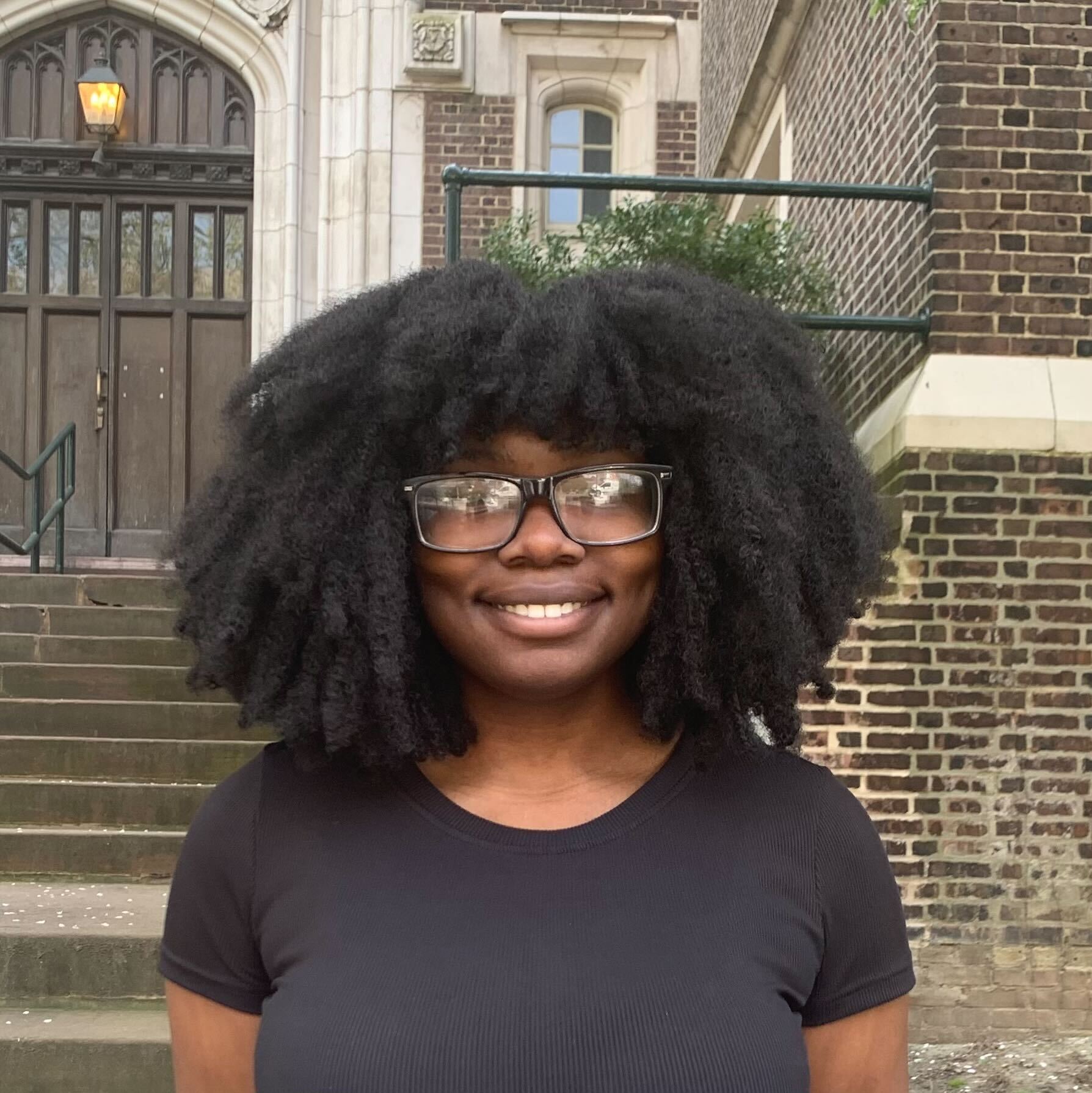OUR TEAM
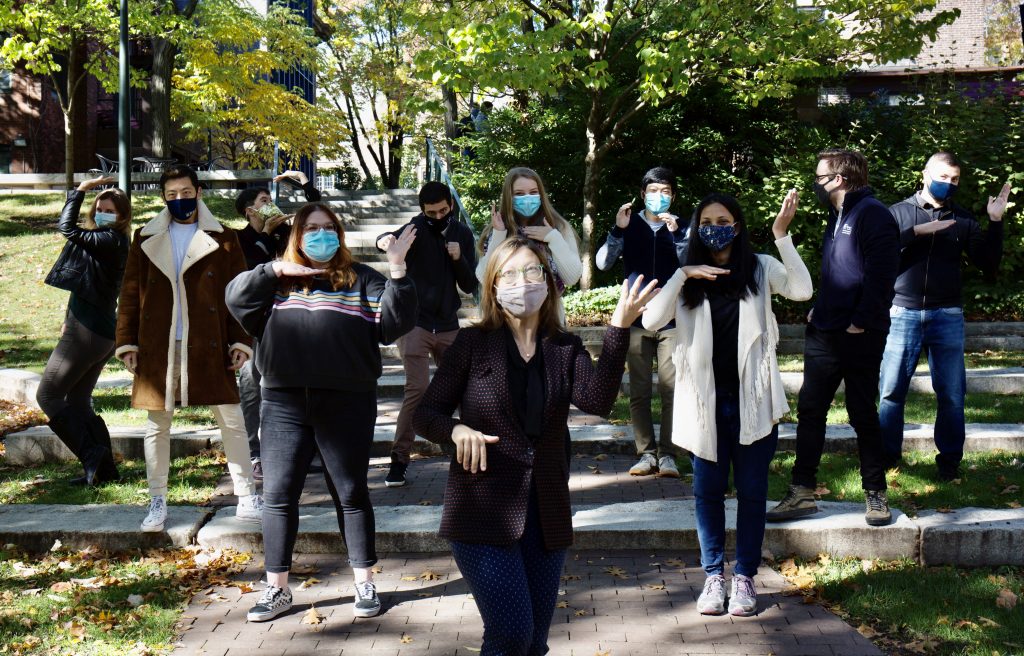
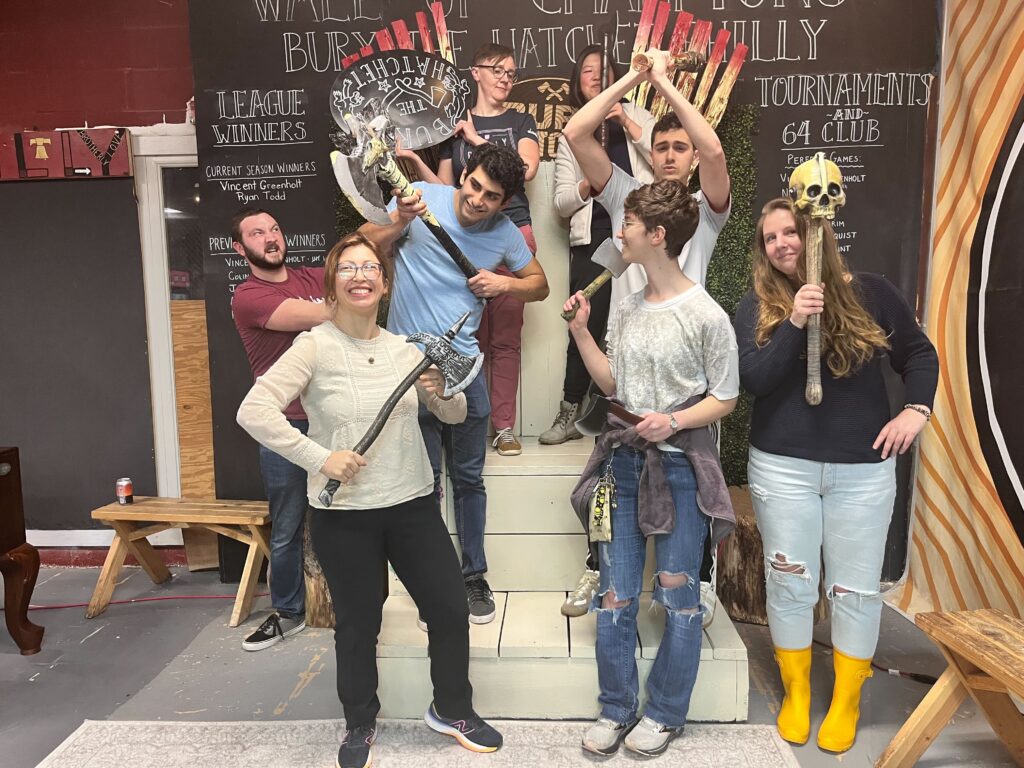
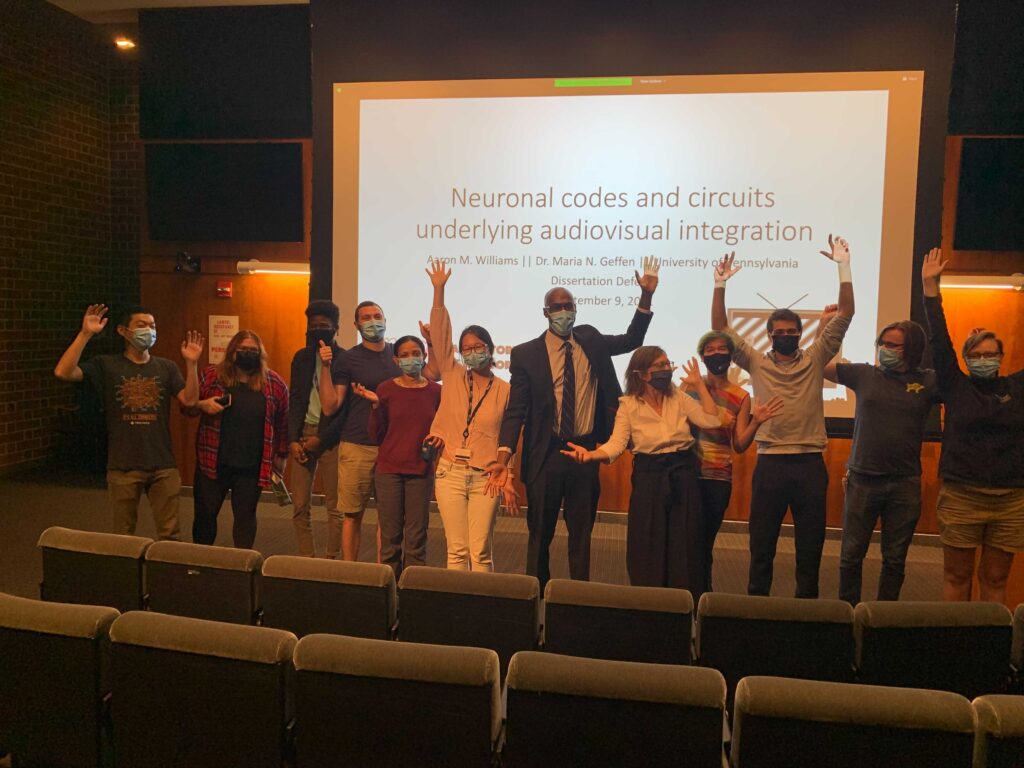
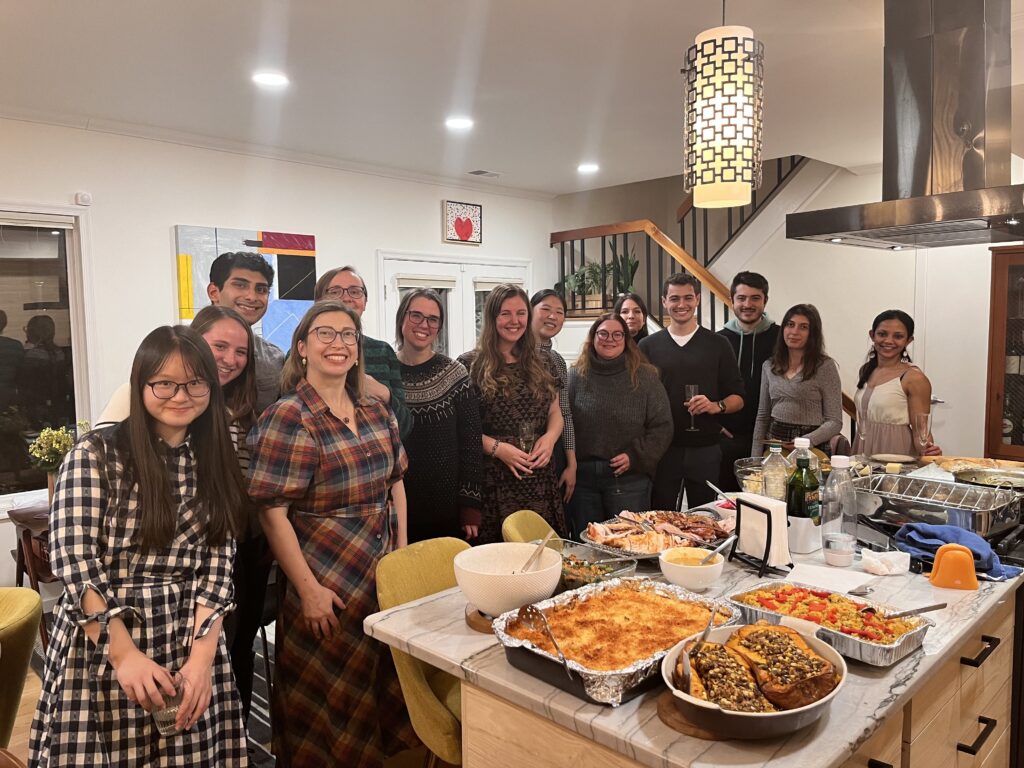
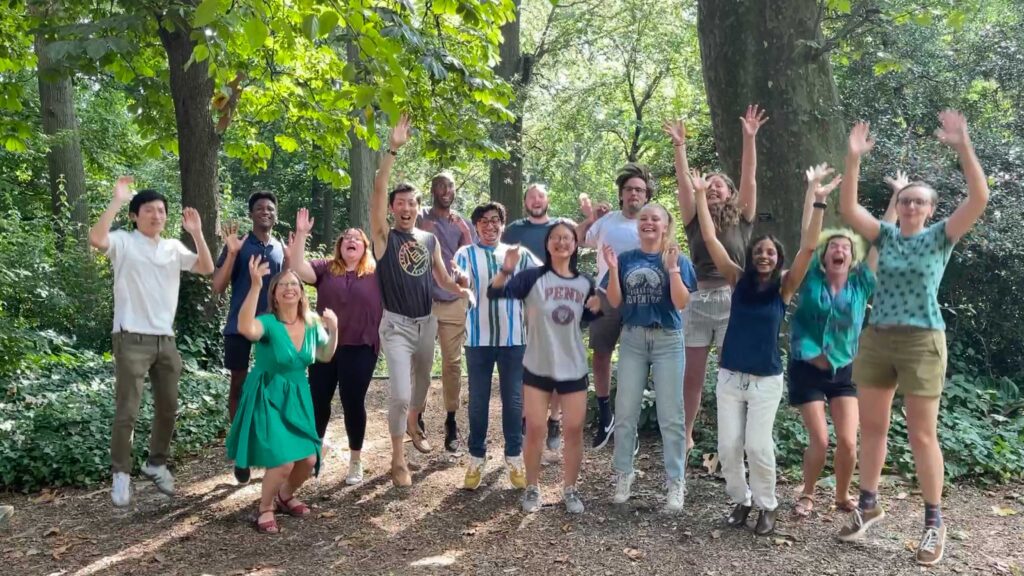
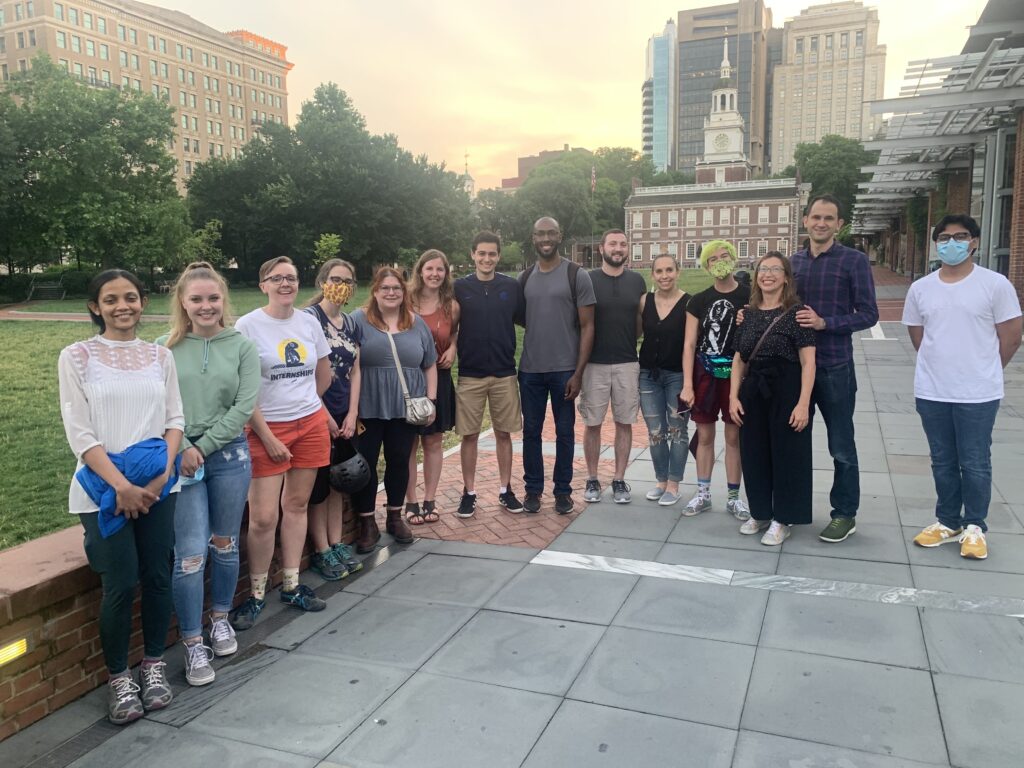
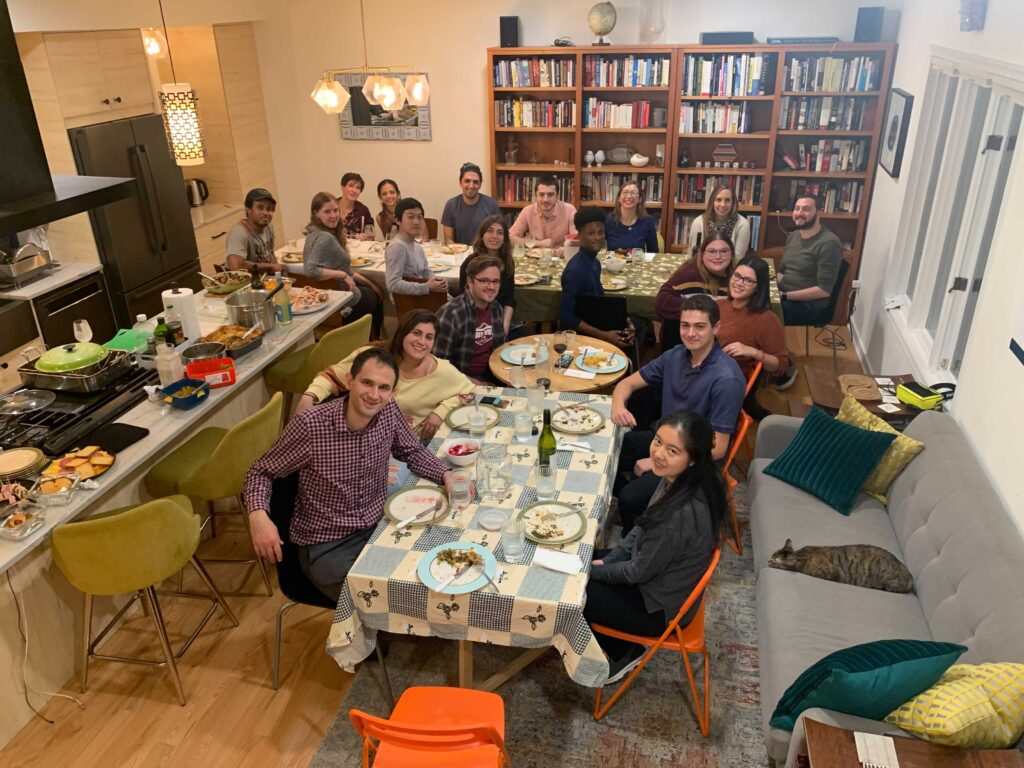
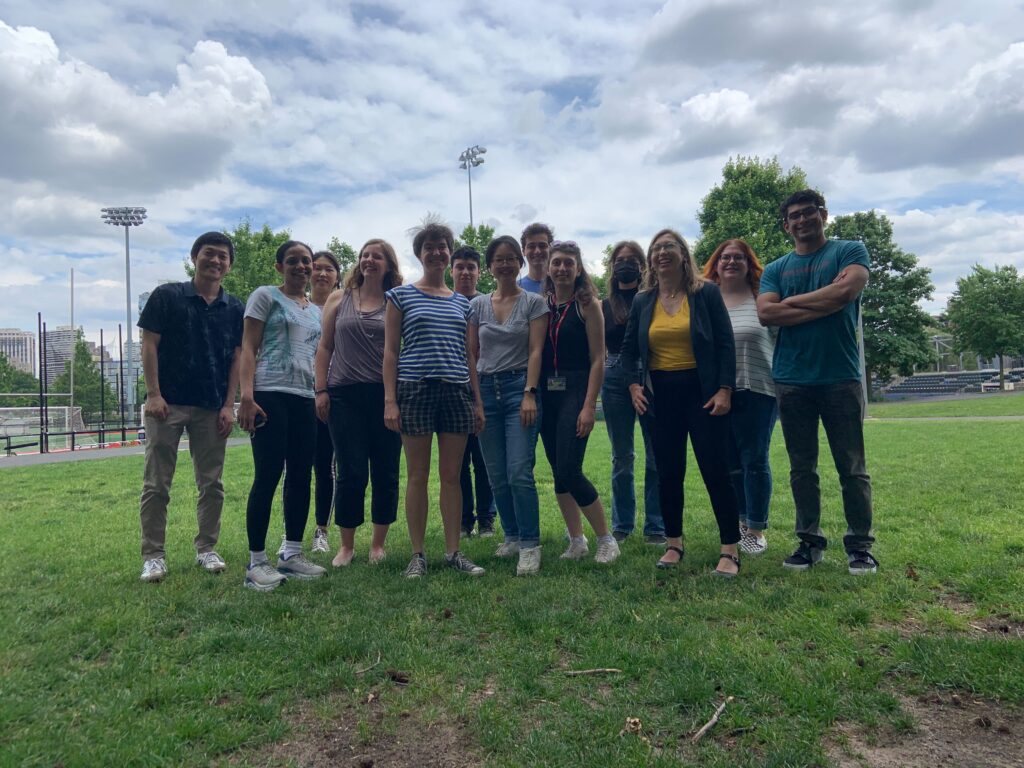
COLLABORATORS
At Penn, we are part of the Hearing Research Center, Computational Neuroscience Institute and MindCore, and have extensive collaborations across departments. We collaborate with Dr. Yale Cohen, Dr. Danielle Bassett, Dr. Konrad Kording, Dr. Jay Gottfried, Dr. Steve Eliades, Dr. Josh Gold, Dr. Marc Fuccillo, Dr. Mariella di Biasi, Dr. Ethan Goldberg.
We also collaborate with researchers across the world, including Dr. Claudia Clopath (Imperial College London), Dr. Judit Gervain (University of Padua), Dr. Ann Hermundstadt (Janelia HHMI), Dr. Wiktor Mlynarski (IST), Dr. Dean Buonomano (UCLA) and Dr. Julie Haas (Lehigh University).
BIOS
Maria Neimark Geffen, Ph.D. she/her
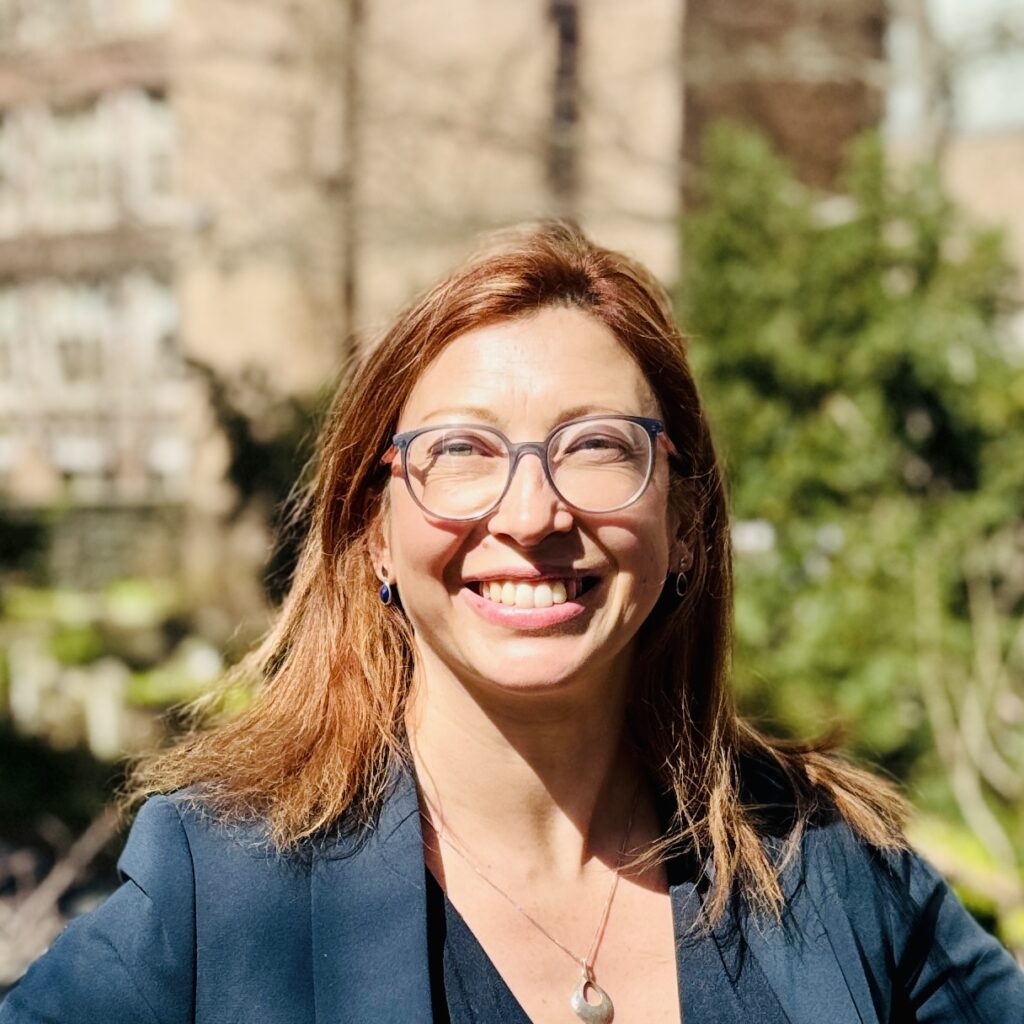
Professor
Departments of Otorhinolaryngology, Neuroscience, and Neurology
University of Pennsylvania

B.A. Princeton University (2001) Molecular Biology, minors in Biophysics and Visual Arts
Ph.D. Harvard University (2006) Biophysics
Dr. Geffen is a leader in the field of auditory neuroscience. She is interested in the way the brain encodes information about the world and how our perception is shaped by our emotional state and experience. She combines computational and biological approaches to study the mechanisms behind dynamic auditory perception, memory and learning.
Dr. Geffen first became interested in systems neuroscience through her undergraduate thesis under mentorship of John Hopfield at Princeton University, in which she explored the mechanics of whisking in rats. She studied texture encoding in the somatosensory system with Christopher Moore at MIT during her first two years of graduate school at Harvard. She completed her Ph.D. in the laboratory of Markus Meister at Harvard University, where she discovered a novel retinal circuit for processing moving images. After her Ph.D., she was a fellow at the Center for Physics and Biology at Rockefeller University, where she worked under mentorship of Dr. Marcelo Magnasco, exploring the dynamics of natural sounds.
Dr. Geffen has been directing the Laboratory for Auditory Coding at the University of Pennsylvania since 2010. She was promoted to Associate Professor in 2018 and to Full Professor in 2023. Dr. Geffen’s recent discoveries include: identifying a novel cell type that supports hearing of unexpected sounds; establishing the connection between emotional learning and sound perceptual acuity; and elucidating the neuronal code for representation of communication signals in the brain. Her scientific results are regularly published in well-recognized journals, including Nature Neuroscience, eLife and PLoS Biology. Her research accomplishments have been recognized with prestigious awards, including the Burroughs Wellcome Career Award at the Scientific Interface, the Klingenstein Foundation Award in Neurosciences, the Human Frontiers in Science Foundation Young Investigator Award, the Auditory Neurophysiology Young Investigator Spotlight Award and the Kaufman Foundation New Initiative Grant. Her research is supported by multiple grants from the NIH, including NIDCD and the BRAIN Initiative, as well as by private and international foundations. She serves as a permanent member on an NIH review panel, and has served as the general chair and workshop director for multiple national and international meetings. She currently serves as a co-director of the Cajal Course in Computational Neuroscience, and an organizer of the E.A.R.S. seminar series. Dr. Geffen is a dedicated mentor and her trainees have won the Brain Research Foundation Young Investigator Award, multiple Ruth L. Kirschstein National Research Service Awards from the NIH and the Saul Winegrad Award for Outstanding Dissertation.
Katherine C. Wood, Ph.D.
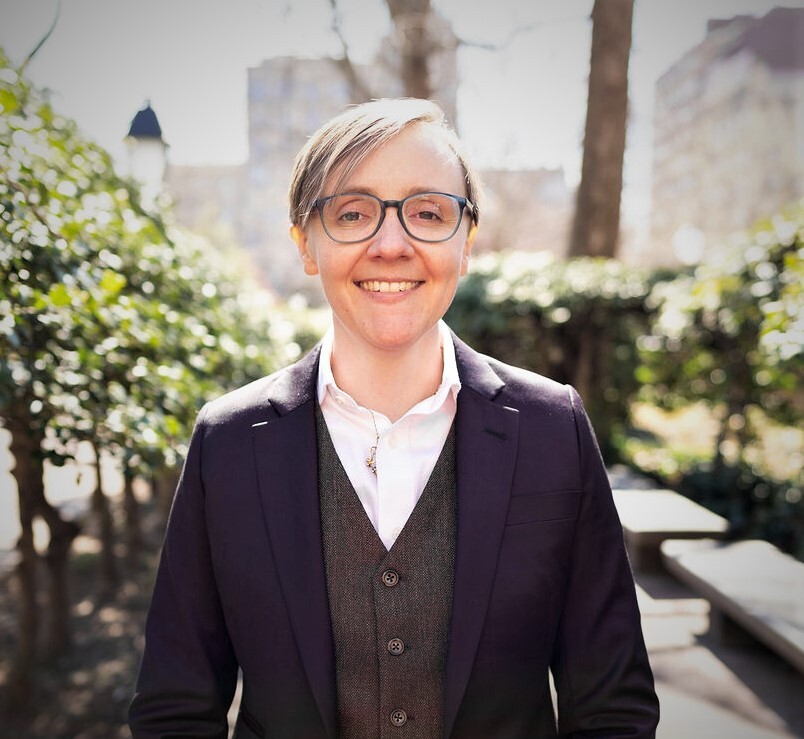
Research Associate
Ph.D. University College London, Neuroscience 2015
M.Sc. University College London, 2010
MBiochem Oxford University, 2006
Dr. Wood studies how the auditory cortex supports learning. She uses two-photon imaging to record neural activity from hundreds of neurons simultaneously, tracking the same cells over many days throughout the course of learning. In particular, she studies differential auditory fear conditioning, during which a mouse is presented with two sounds, one of which is paired with a foot-shock. Following conditioning, mice learn with varying degrees of specificity to discriminate between the two sounds. Dr. Wood found that the activity in auditory cortex is able to predict the specificity with which mice learn to discriminate between the two stimuli.
As an undergraduate Dr. Wood studied Biochemistry at Oxford University. Dr. Wood spent a few years after her degree working in London in various different roles before she decided that she wanted to be in academia. Dr. Wood went back to university to study for an MSc in Neuroscience at UCL after which she undertook her PhD there in the lab of Jennifer Bizley. In her PhD, Dr. Wood investigated how the auditory cortex of ferrets encodes the spatial location of sounds. She moved to the Geffen lab in early 2016.
Alexandria Lesicko, Ph.D.
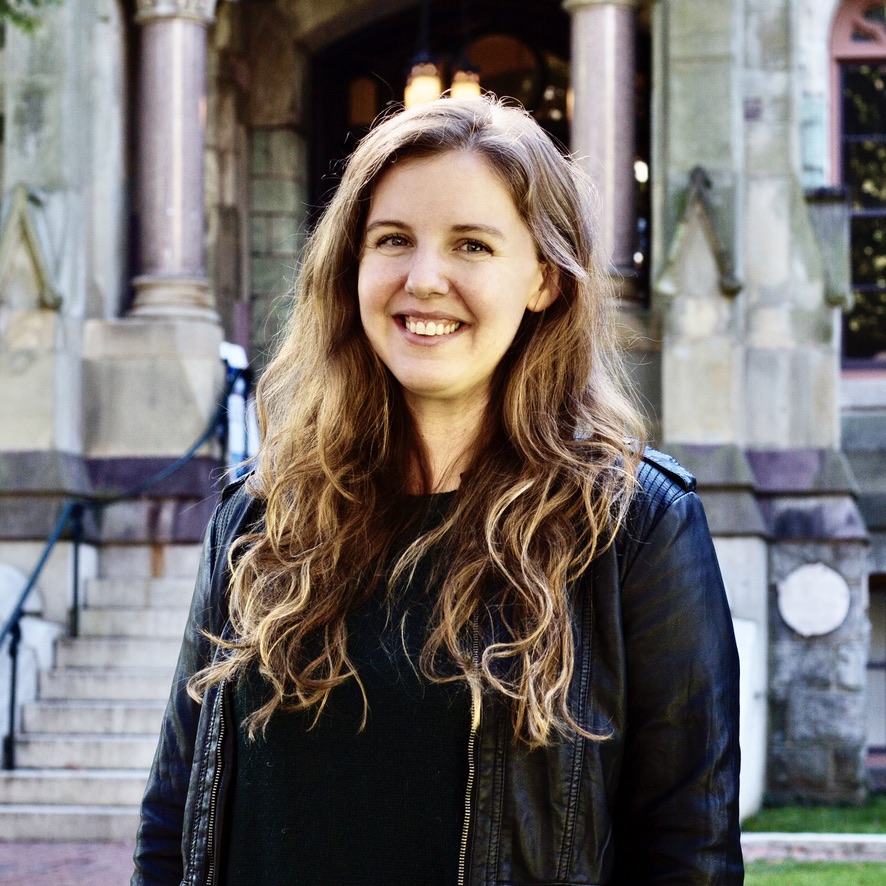
Post-doctoral Fellow
Ph.D. University of Illinois Urbana-Champaign, Neuroscience 2018
B.S. University of Illinois Urbana-Champaign, Molecular and Cellular Biology 2012
Dr. Lesicko is interested in deviance detection and multisensory processing in the auditory midbrain, or inferior colliculus. She uses optogenetics and in vivo electrophysiology to determine how projections from the auditory cortex affect metrics of deviance detection in the inferior colliculus. She has found that input from the auditory cortex regulates processing of both repetition and prediction cues in the inferior colliculus. She has also received funding from the BRAIN Initiative to study how auditory and somato-motor information are encoded in the inferior colliculus using a combination of two-photon imaging, behavior, and network analysis techniques. She completed both her Bachelor’s degree (Molecular and Cellular Biology) and PhD (Neuroscience) at the University of Illinois at Urbana-Champaign, where she studied modularity in the multisensory inputs and local connections of the inferior colliculus with Dr. Daniel Llano. She is one of the co-organizers of the EARS seminar series. Outside of the lab, she enjoys singing in an a cappella group, playing piano and guitar, cooking, and yoga.
Nathan Vogler, Ph.D.
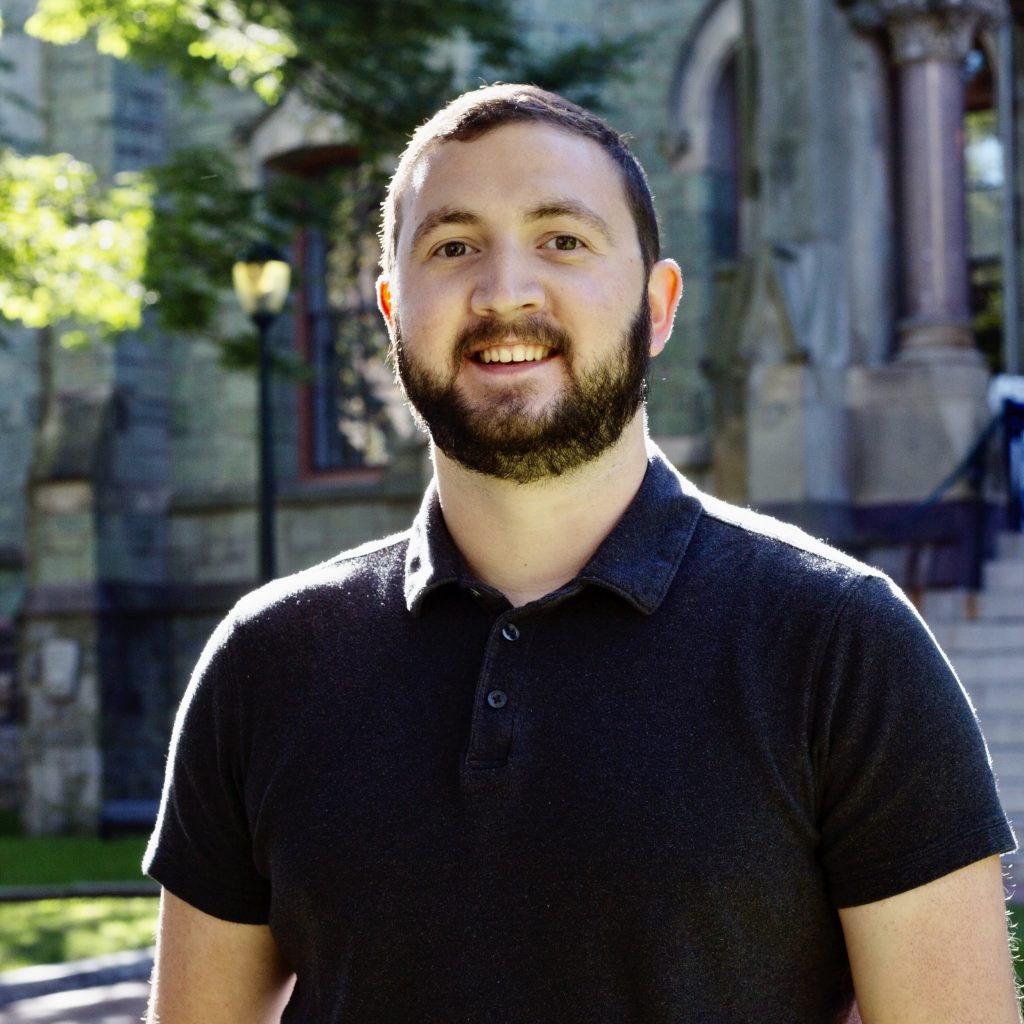
Post-doctoral Fellow
Ph.D. University of Pittsburgh, 2019, Neurobiology
B.A.University of Pittsburgh, 2014 Neuroscience and History & Philosophy of Science
Dr. Vogler studies the brain circuits that mediate learning and flexible behaviors during auditory categorization, focusing on cortico-striatal feedback loops between the auditory cortex and basal ganglia. Specifically, he uses intersectional viral tracing strategies to map these circuits, and two-photon imaging to track neuronal responses during learning of an auditory categorization task. Also, through a collaboration with the Gottfried laboratory, he studies the neural mechanisms of cross-modal auditory-olfactory integration, using a combination of anatomical tracing, behavior, and in vivo electrophysiology. As an undergraduate at the University of Pittsburgh, he studied Neuroscience and History & Philosophy of Science. He received his PhD in Neurobiology from the University of Pittsburgh, studying experience-dependent plasticity of synaptic zinc signaling in the auditory brainstem. He began working in the Geffen Lab in spring 2020. Outside of the lab, he enjoys cooking, eating, and playing music.
Janaki Sheth, Ph.D.
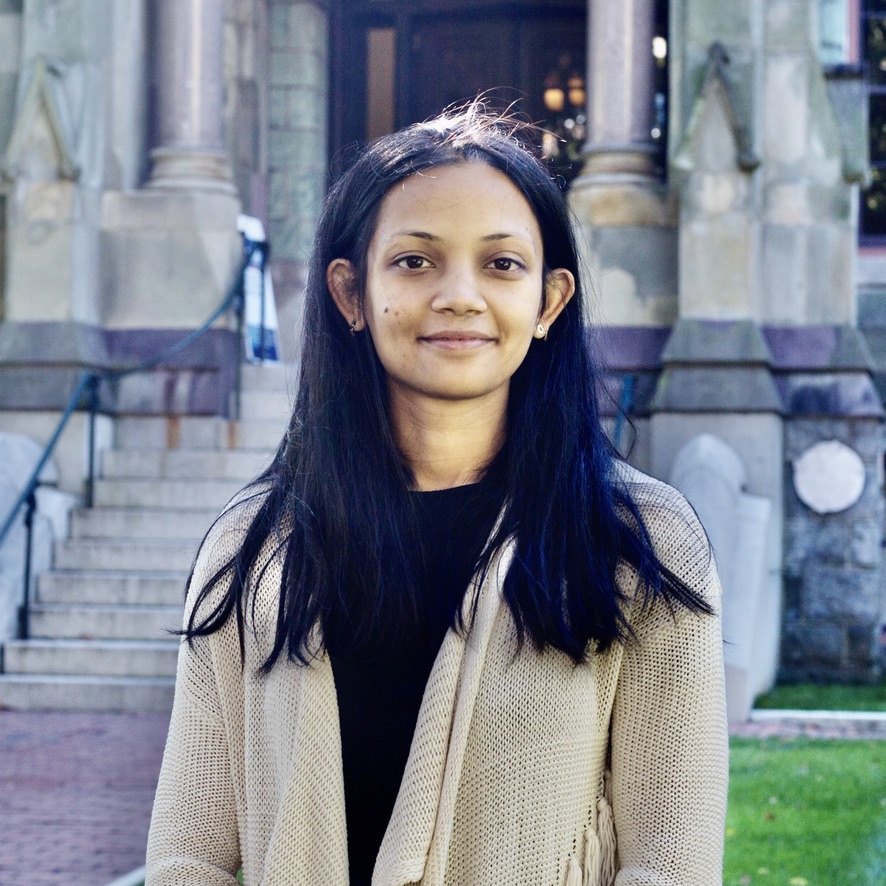
Post-doctoral Fellow
Ph.D., University of California Los Angeles, Physics, 2020
B. Tech, 2014 Indian Institute of Technology, Bombay
Dr. Sheth is a new postdoc in the lab, having joined in September 2020. She studies the role of inhibitory neurons in auditory learning using computational methods, in particular bayesian modelling and dynamical systems analysis. Dr. Sheth did her undergraduate studies at the Indian Institute of Technology, Bombay where she majored in Engineering Physics and minored in Electrical Engineering. Dr. Sheth’s interest in Physics led her to pursue a PhD at UCLA where she investigated the behaviour of the hair cells of the inner ear using ideas from nonequilibrium statistical mechanics. Her growing interest in the auditory system has since brought her to the Geffen lab. Dr. Sheth’s hobbies include hiking, biking, running, dancing and cooking new recipes.
Dan Jacinta Luo, Ph.D.
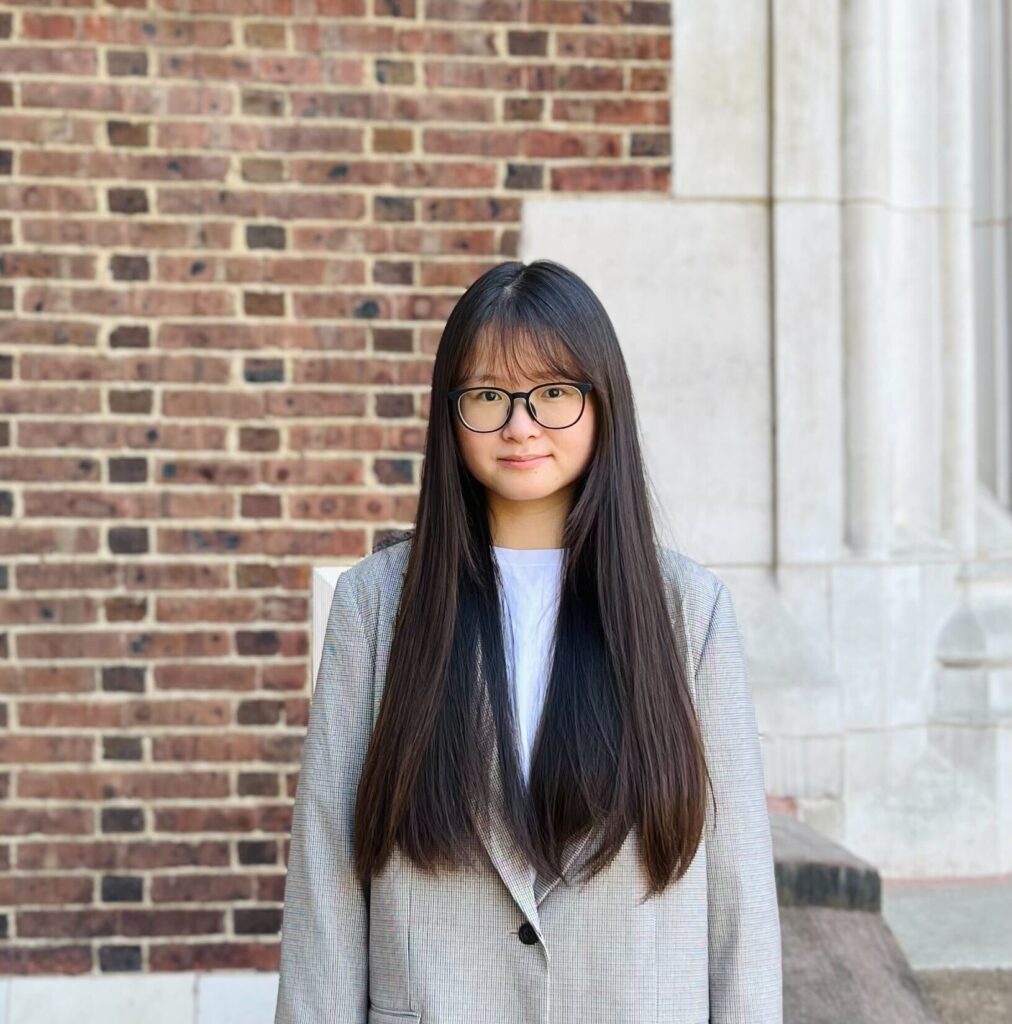
Post-doctoral Fellow
Ph.D. City University of Hong Kong, Neuroscience, 2022
B.S. Shehezi University, Psychology, 2016
Dr. Luo is a new postdoc in the Geffen Lab and began to work in June 2022. She is interested in predictions and learning and currently working on the neural circuits of predictive coding using two-photon imaging and optogenetics. She received her Bachelor of Science degree in Psychology at Shehezi University in 2016. Then she worked as a research assistant at the Institute of Psychology at the Chinese Academy of Sciences, studied the speech in noise perception of different types of musicians, and worked on human behavioral experiments under the supervision of Dr.Yi Du in 2017. She then switched to working with animals and completed her Ph.D. in auditory neuroscience at the City University of Hong Kong under the supervision of Dr. Jan Schnupp and Dr. Ryzard Aukstulewiz, studied the statistical learning and deviance detection in rodents using behavioral training, electrophysiology (mostly ECoG) and calcium imaging techniques. Outside of the lab, she enjoys hiking, music, and movies.
Matilda Gibbons, Ph.D.
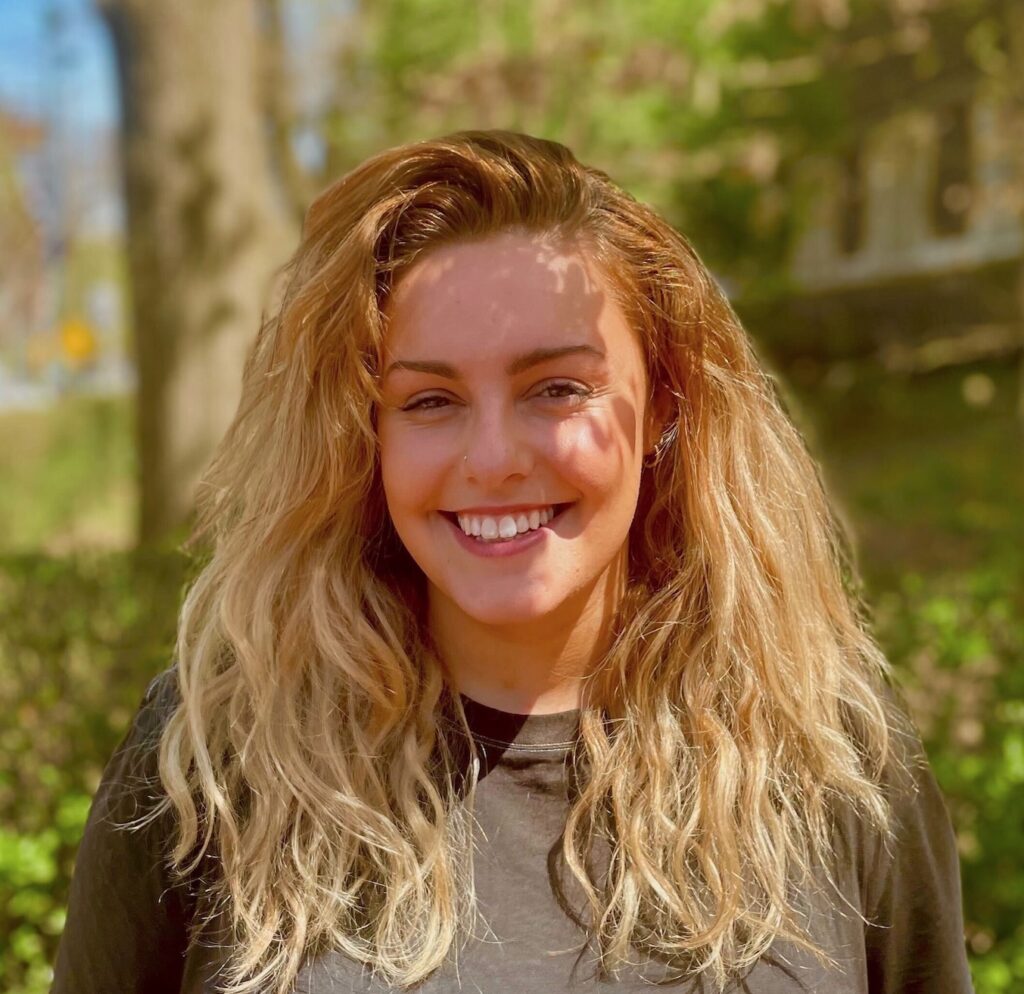
Post-doctoral Fellow
Ph.D., Queen Mary University of London, Biological Sciences, 2023
B.Sc. King’s College London, Neuroscience, 2016
Dr. Gibbons is a postdoc researching the neural basis of consciousness. In collaboration with labs at the Allen Institute, the University of Wisconsin and NeuroSpin, she is testing two main theories of consciousness (The Global Workspace Theory and Integrated Information Theory). She uses a combination of optogenetics, electrophysiology and behavior, aiming to clarify where and when consciousness arises in the mammalian brain.She completed her PhD at the Bee Sensory and Behavioral Ecology Lab at Queen Mary University of London, where she tested behavioral and neural indicators of affective pain in insects in bumblebees (Bombus terrestris). She also worked with fruit flies (Drosophila melanogaster) at the Neural Circuits and Evolution lab at the Francis Crick Institute in London. For her undergraduate degree, she studied Neuroscience (BSc) at King’s College London, where she researched the role of descending neurons in chronic pain in mice in the Denk Lab at the Wolfson Centre for Age-Related Diseases.
Solymar Rolon Martinez
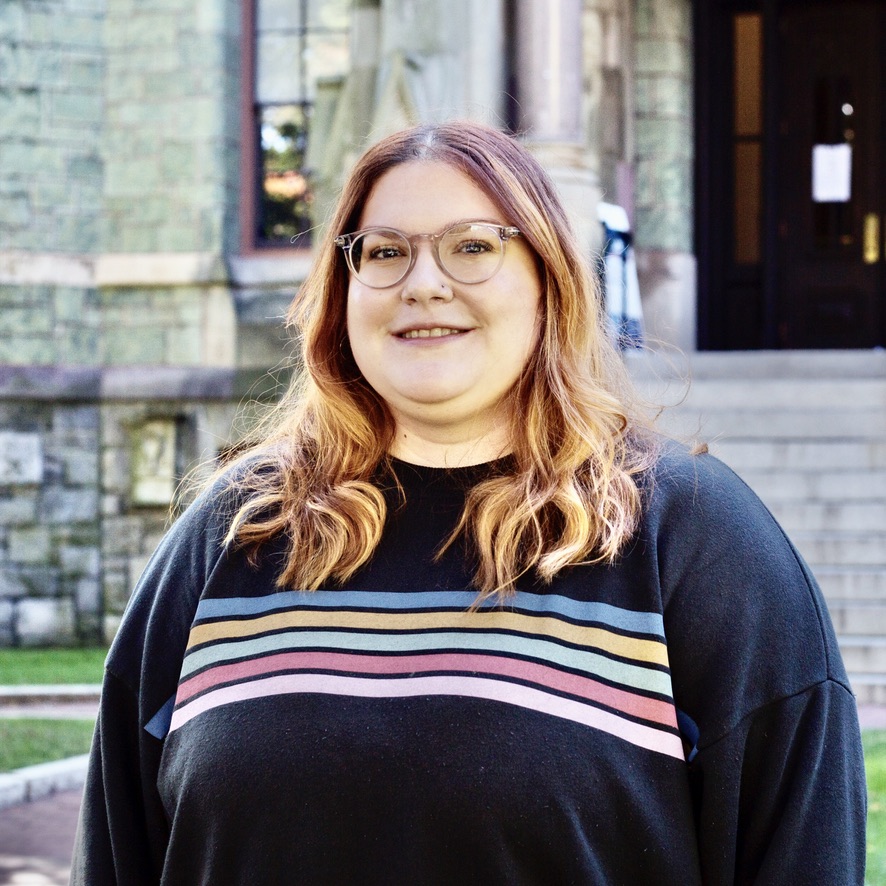
Postdoctoral Fellow
B.S., M.S. University of Puerto Rico, 2012, Biomedical Sciences and Anatomy
Ph.D. University of Pennsylvania, 2023, Neuroscience
Solymar is studying the role of amygdala-thalamic projections in auditory behavior.
Xiaomao Ding
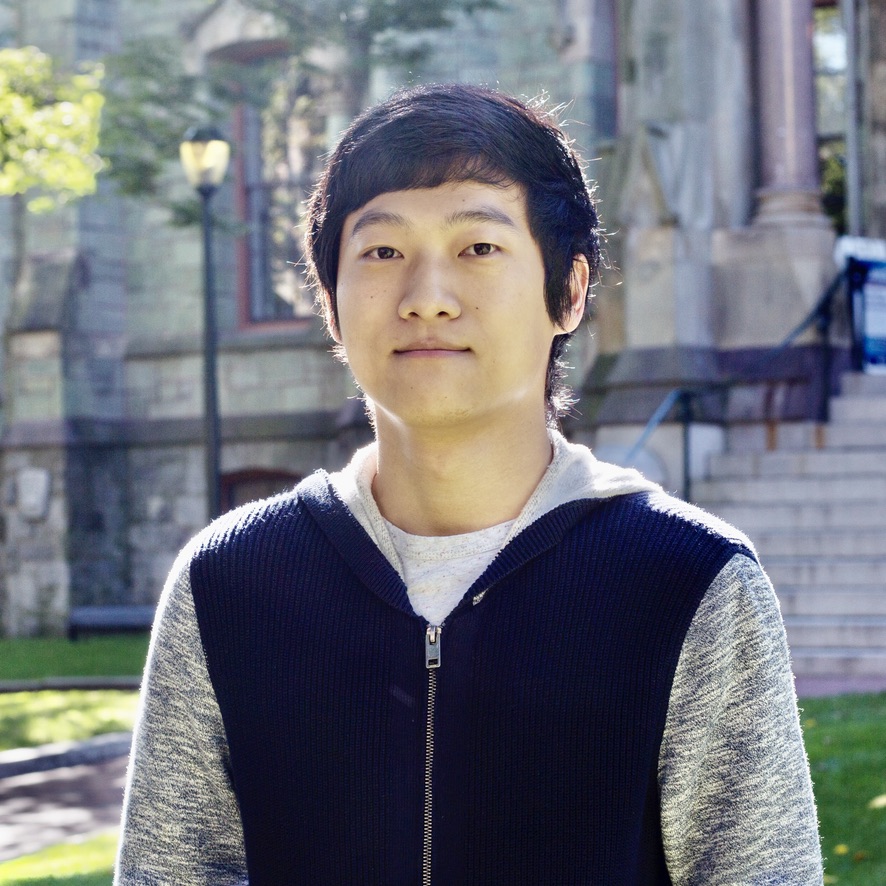
Ph.D. student, Neuroscience Graduate Group
B.S. University of Pennsylvania, 2017
Xiaomao studies how temporal patterns in sound affect auditory processing. Specifically, he studies how regularity in an auditory scene affects the neural representation of novel sounds. He uses a combination of electrophysiology during mice performing an operant task and 2-photon imaging in mice during passive listening. Xiaomao also attended Penn as an undergrad where he majored in Biochemistry and Computer Science.
Jared Collina
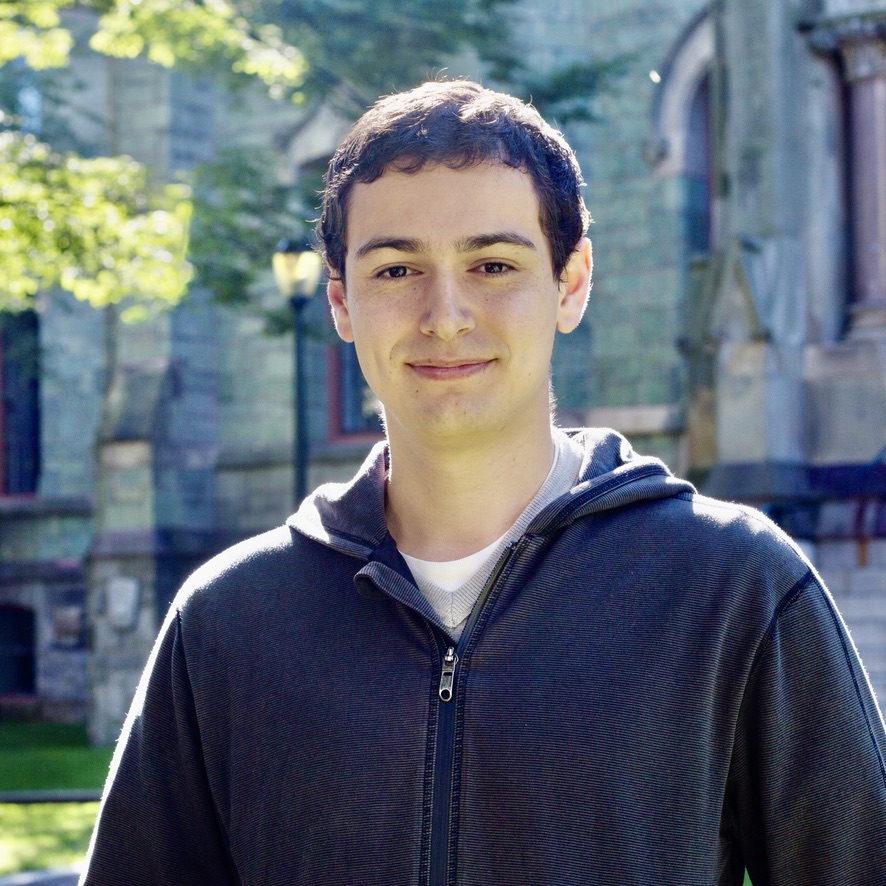
Ph.D. student, Neuroscience Graduate Group
B.S. Haverford College, 2018, Physics
Jared is a PhD student in Neuroscience who joined the lab in Fall 2019. His work in the lab focuses on the neuronal circuits for hearing under uncertainty. His first experience with the intersection of physics and neuroscience was as an intern with Dr. Ian Krajbich at The Ohio State University, where he used computational models of human decision-making. He made the step to experimental neuroscience during his graduate studies. In his free time, he enjoys soccer, tennis, video games and board games… well, games in general.
Omer Zeliger
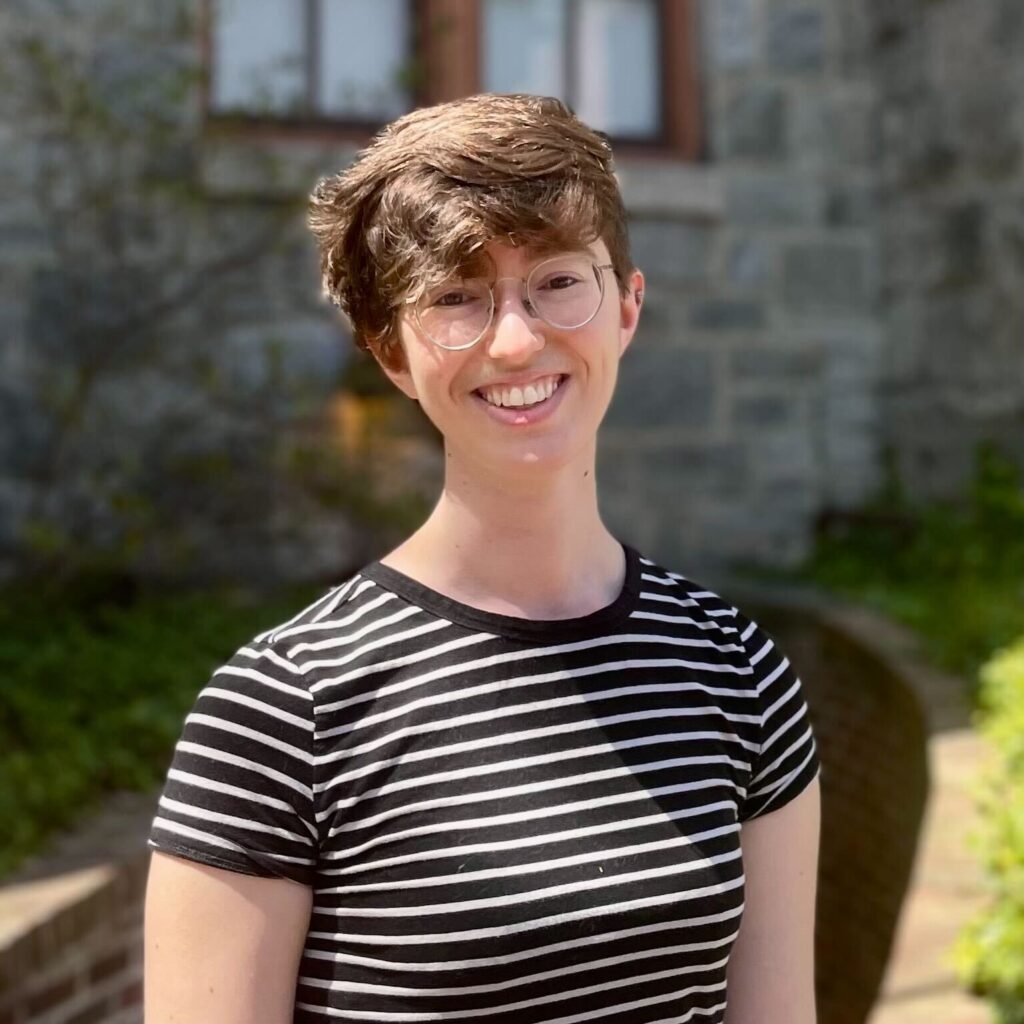
Ph.D. student, Neuroscience Graduate Group
B.S. Northeastern University, 2019, Behavioral Neuroscience
Omer is a second-year PhD student in the Geffen lab. She initially studied social dominance and competition with Dr. Ziv Williams at Mass General Hospital, and is now interested in the function of inhibitory neurons in sensory adaptation. Outside of lab she enjoys biking and crochet, and is always happy to discover new favorite sci-fi novels.
Gozde Erdil
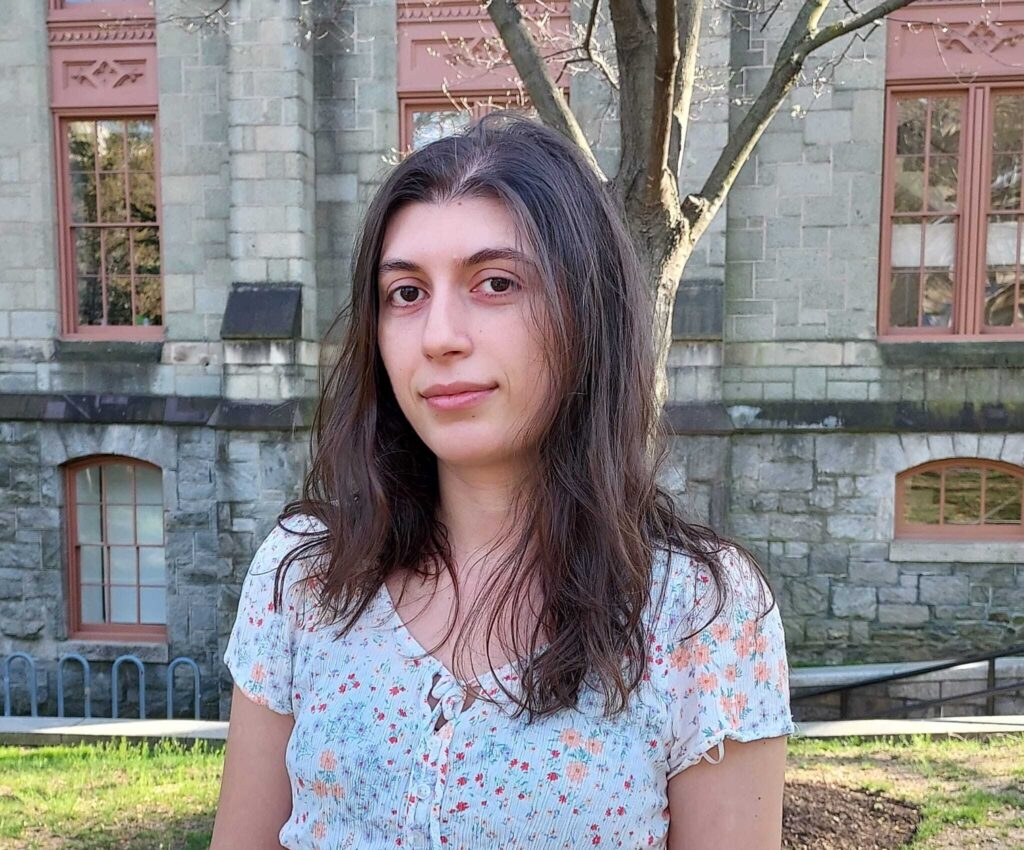
Research Technician
B.Sc. Middle East Technical University, 2018, Electrical & Electronics Engineering
Gozde received her B.Sc. from the Electrical and Electronics Engineering Department at METU where she followed the biomedical track. She worked as an electrical design engineer for two years. After that, she decided to follow her interest in neuroscience and combine her engineering background with auditory processing research. She studies analyzing the neural mechanisms for hearing under uncertainty. She joined the Geffen Lab in Fall 2021 and she is currently working on building microdrives and designing a custom behavioral system. Outside the lab, she loves painting and crocheting.
Ruoyi Chen
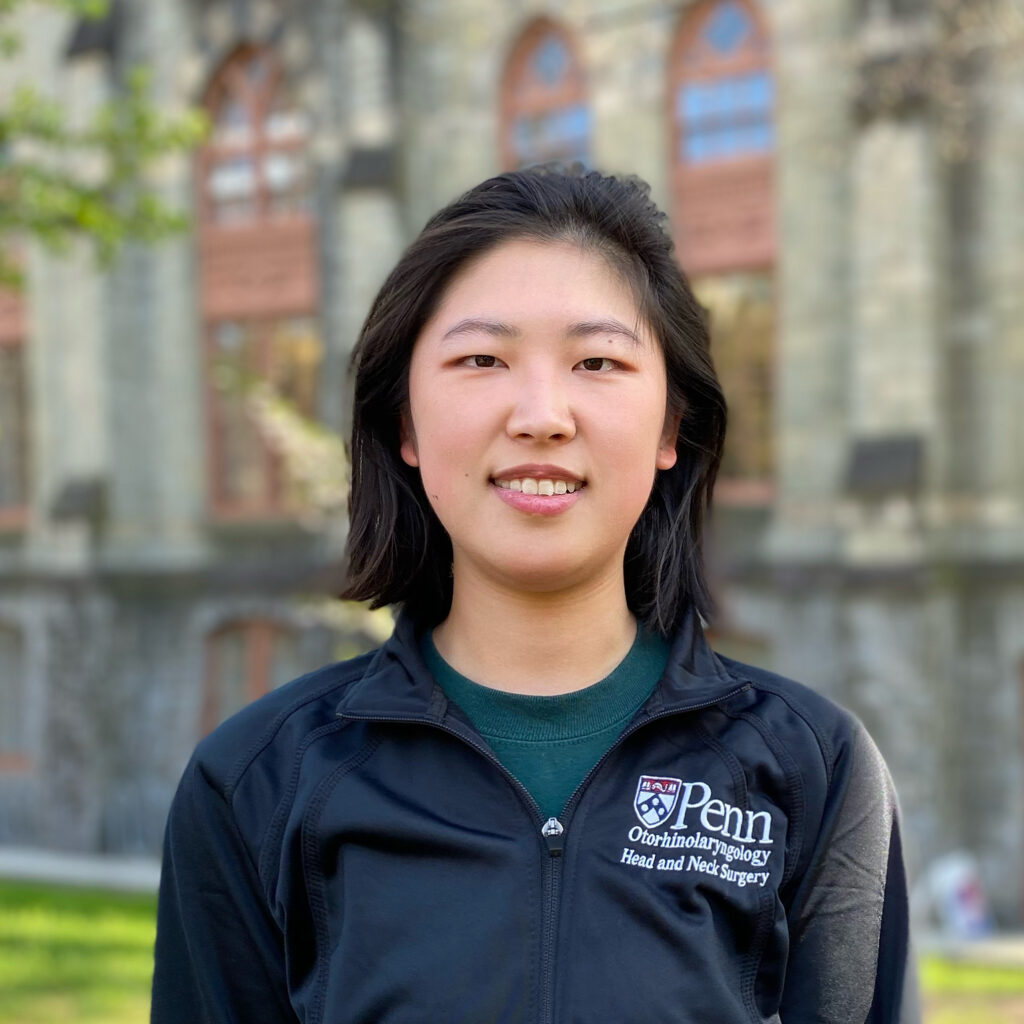
Research Technician
B.S., 2022, Carnegie Mellon University, Neuroscience
Ruoyi joined the lab as a research technician in summer 2022. During undergrad, she developed an interest in modulation in sensory processes through working in Dr. Marlene Cohen’s lab, where she studied how task-relevance affects people’s visual discrimination performance. In the Geffen lab, she works with Dr. Vogler on the project to explore how auditory and olfactory sensory systems interact in mouse models. Specifically, she does anatomical tracing and behavioral experiments for the project. Outside of the lab, she enjoys cooking, listening to podcasts, playing volleyball and crafting.
Erin Michel
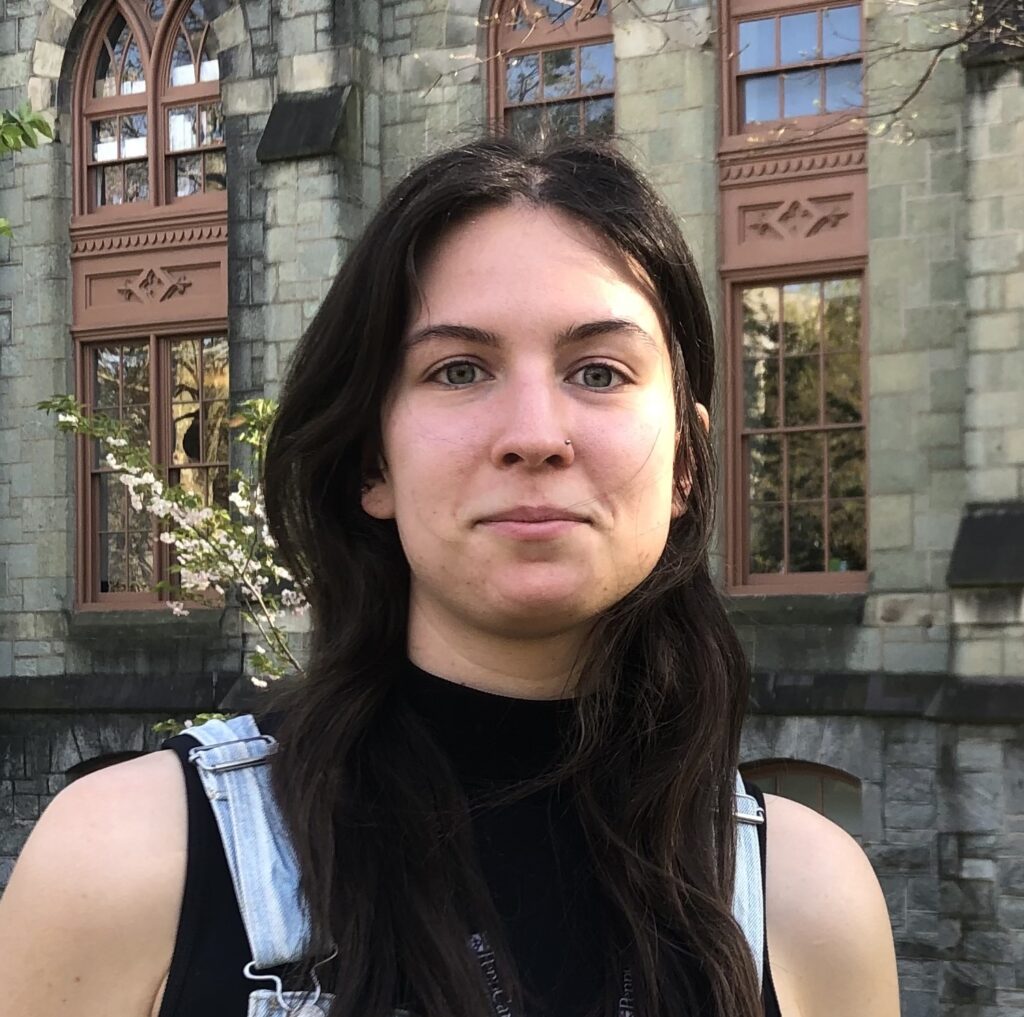
Research Technician
B.S., 2022, Temple University, Neuroscience
Erin joined the lab in 2022 as a lab technician. She graduated from Temple University with a B.S. in Neuroscience. Outside of the lab, she enjoys hiking and making clothes.
Kehinde Adeaga
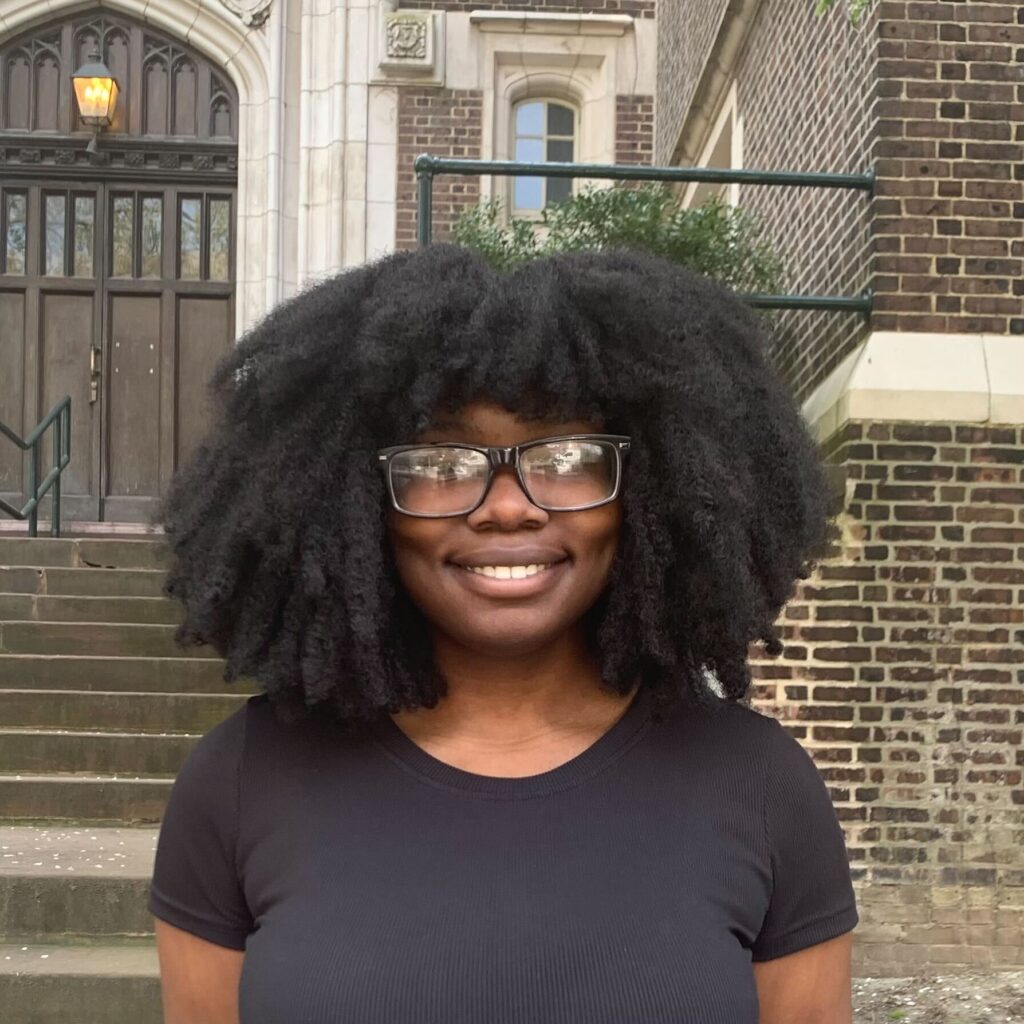
Research Technician
Undergraduate student, University of Pennsylvania
Kehinde is an undergraduate at the University of Pennsylvania. She joined the lab in the beginning of 2023 as a Penn FERBS Fellow. Kehinde is an intended neuroscience major and first gained interest in the subject after reading a book on patient H.M., the most studied patient in neuroscience history. Since, she has gained an interest in the auditory system and is working closely with one of our postdocs on a project in understanding adaptation to single sided hearing loss. Outside of the lab Kehinde loves to read and watch tv shows and movies with friends.
Former Lab Members
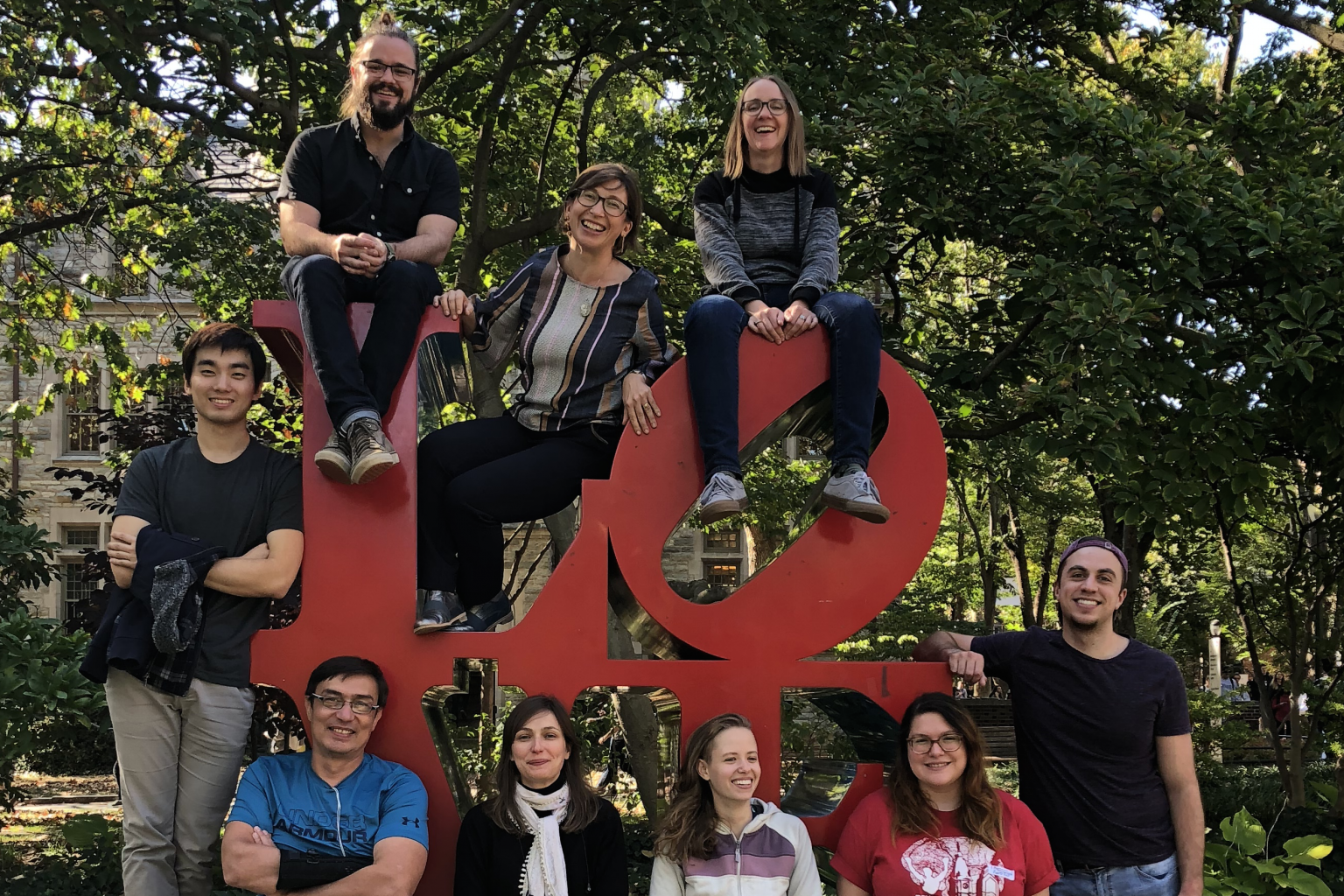
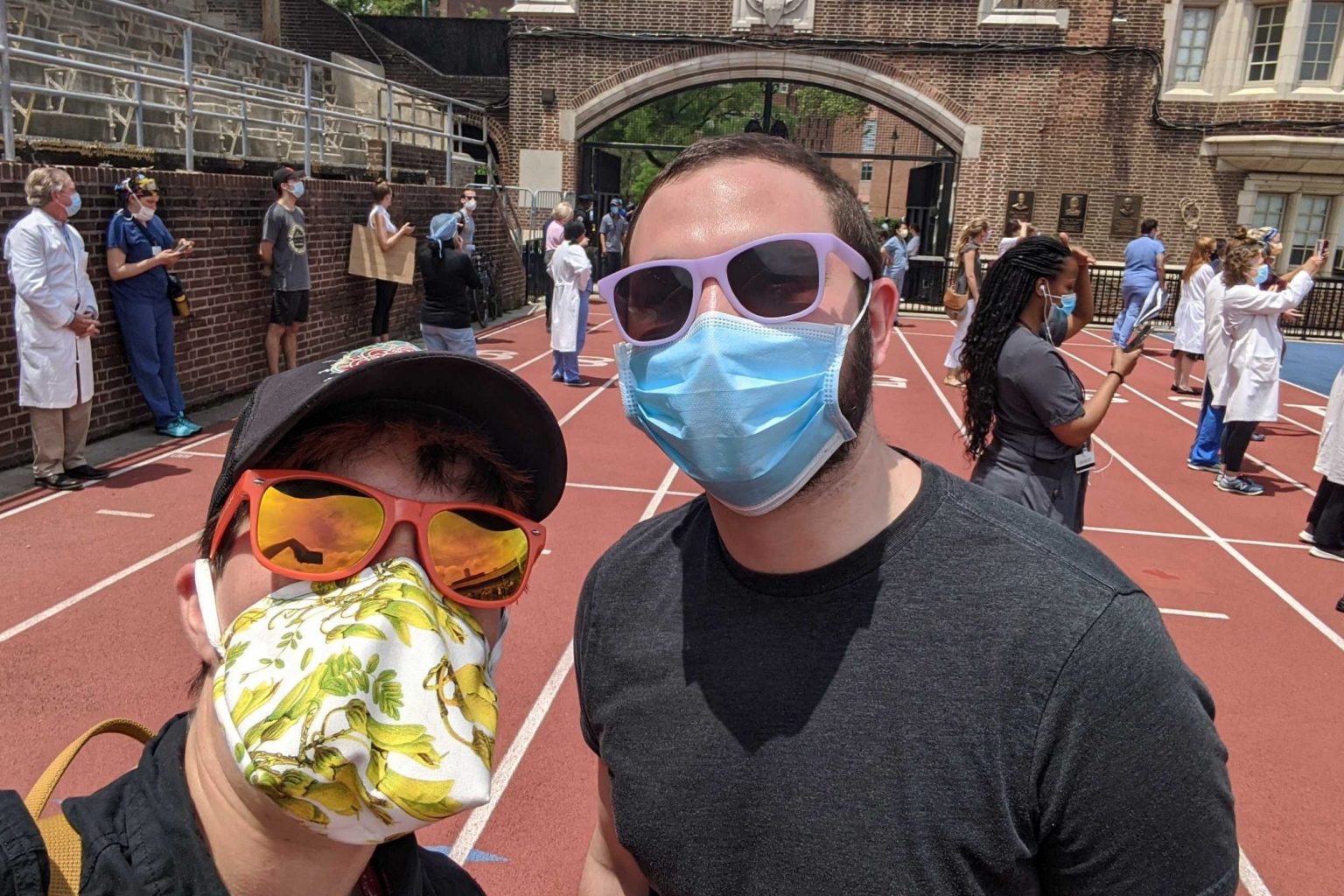
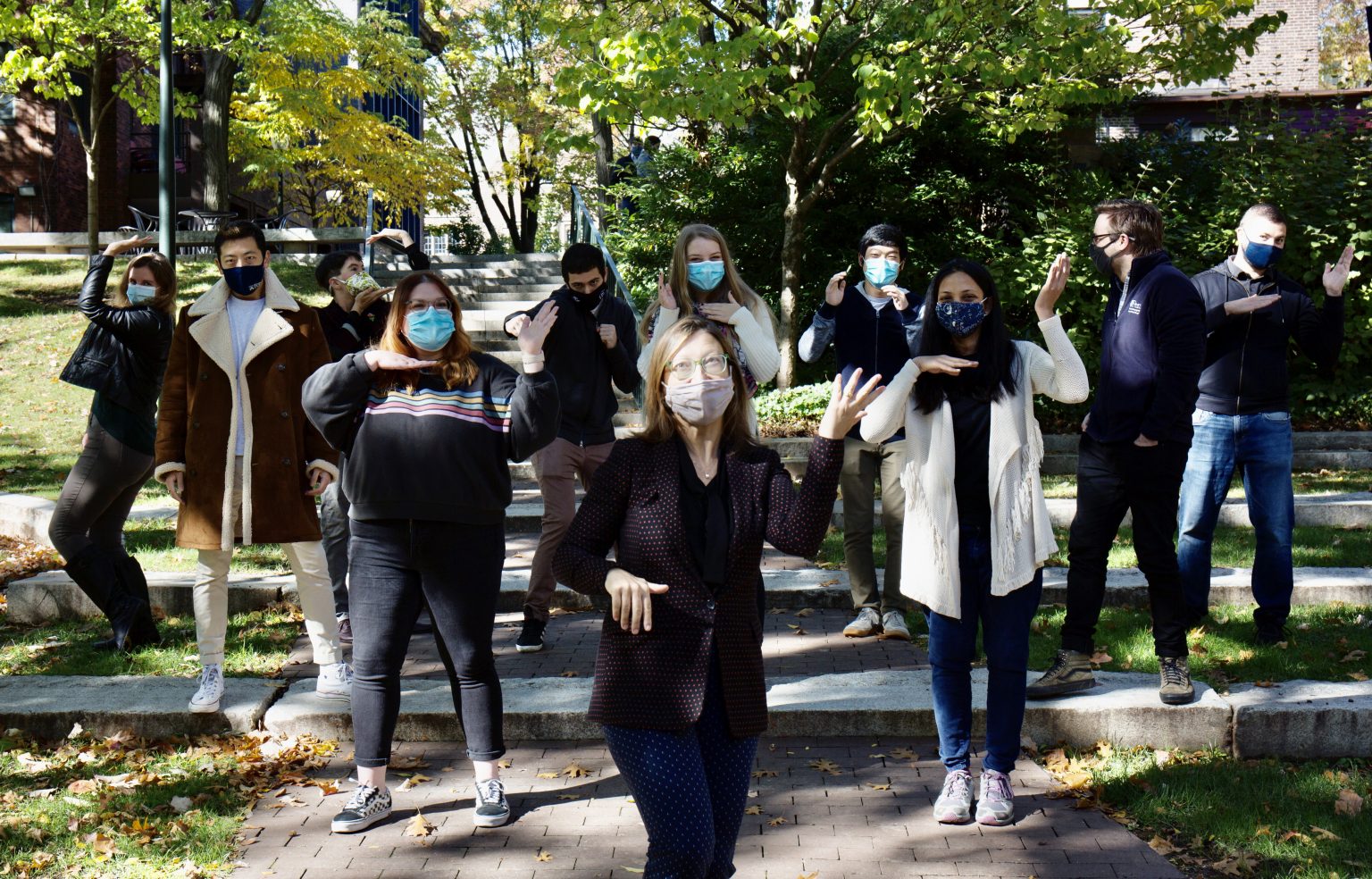
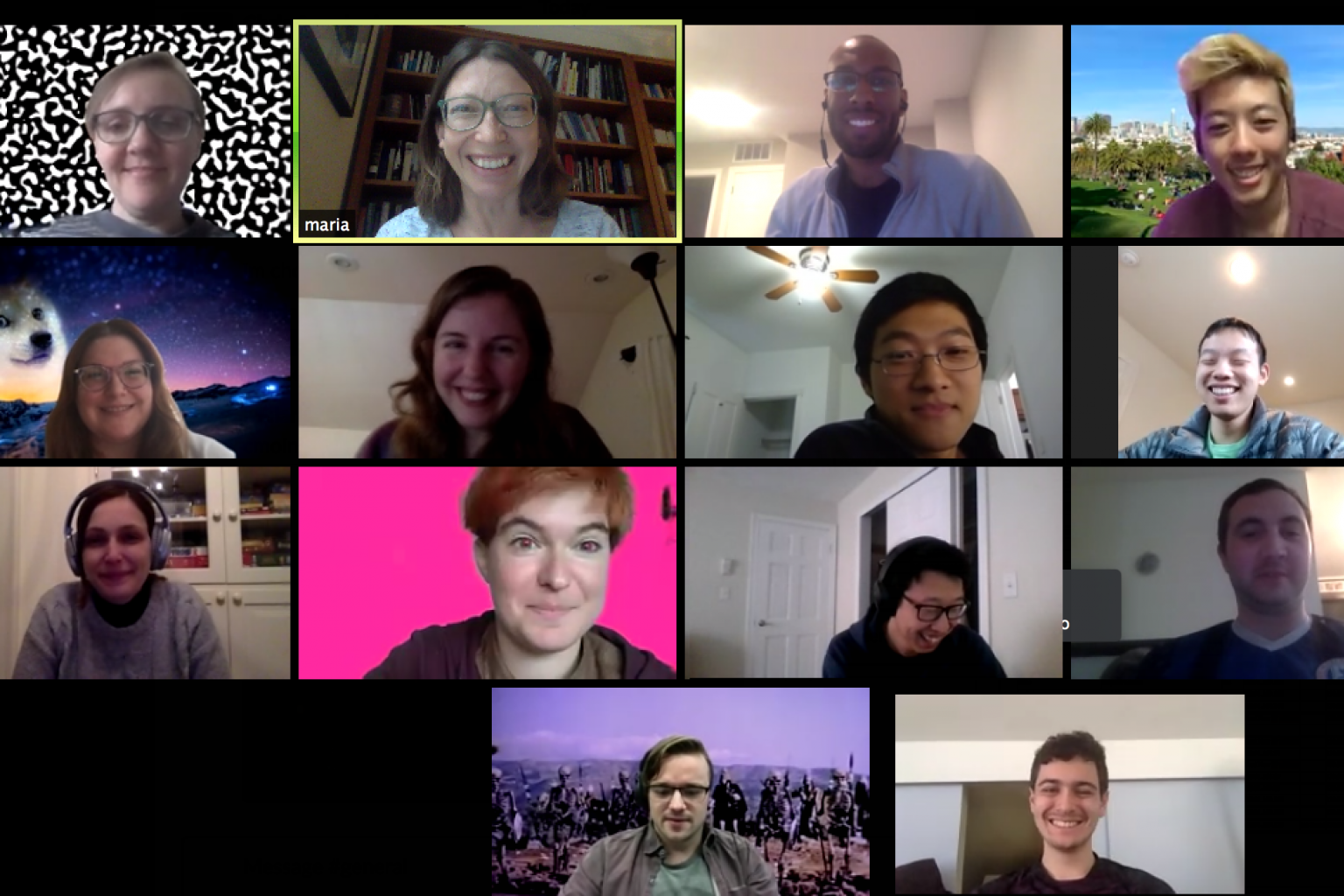
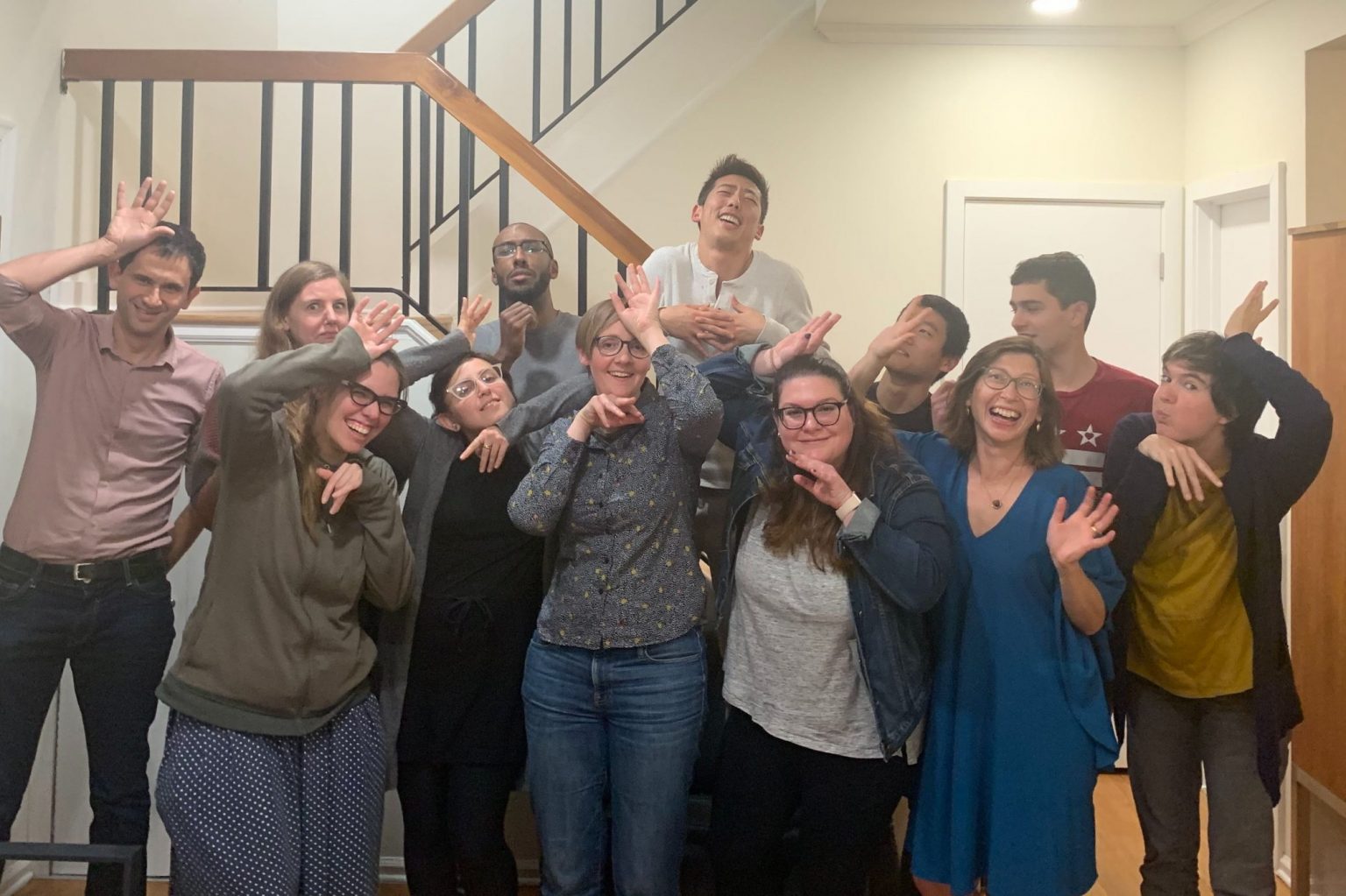
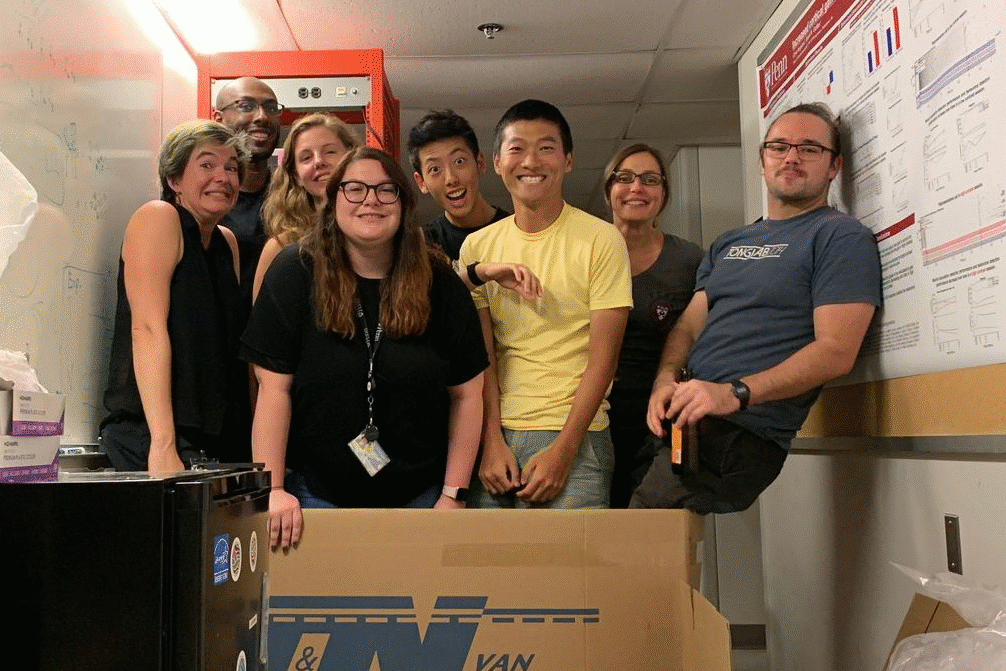
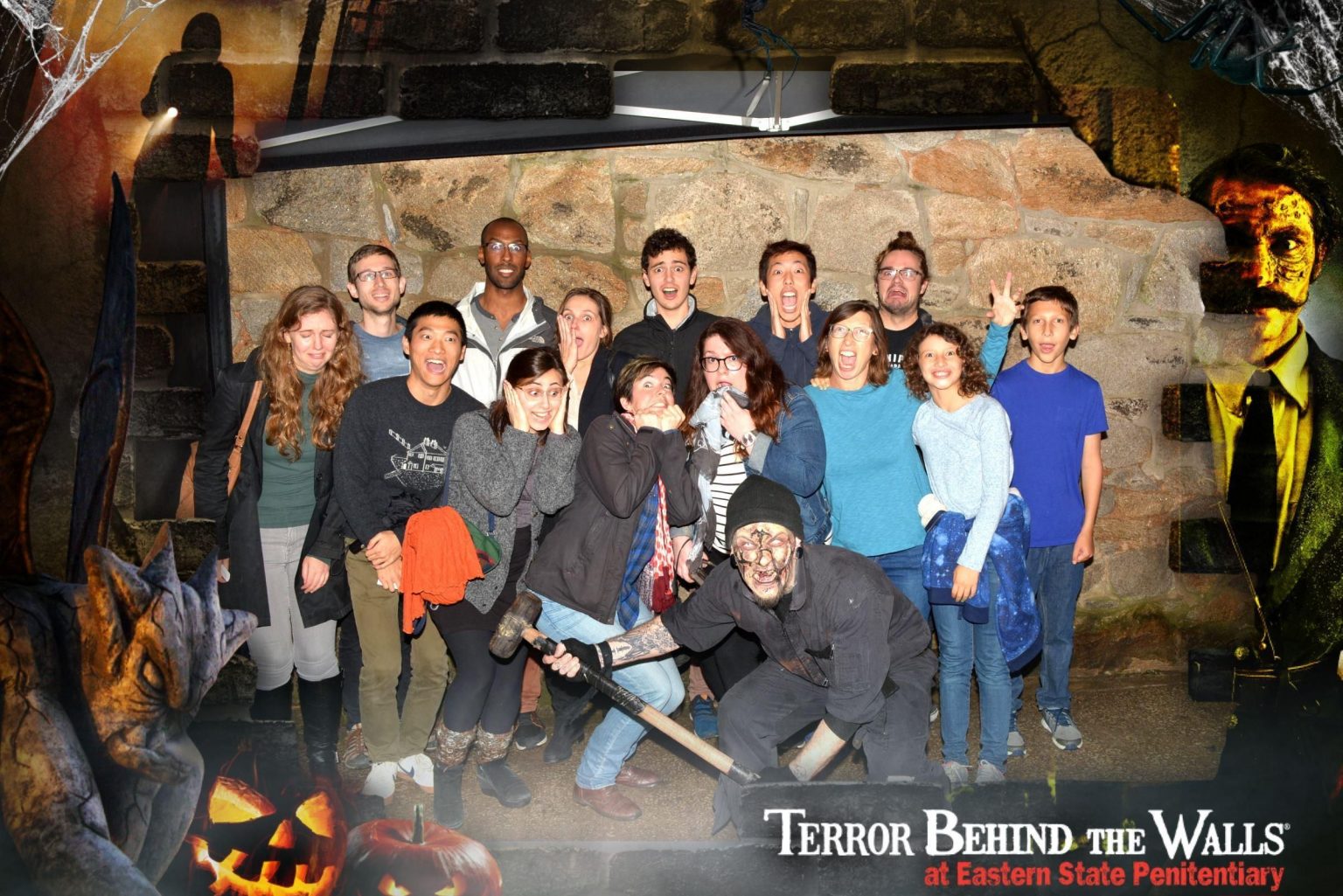
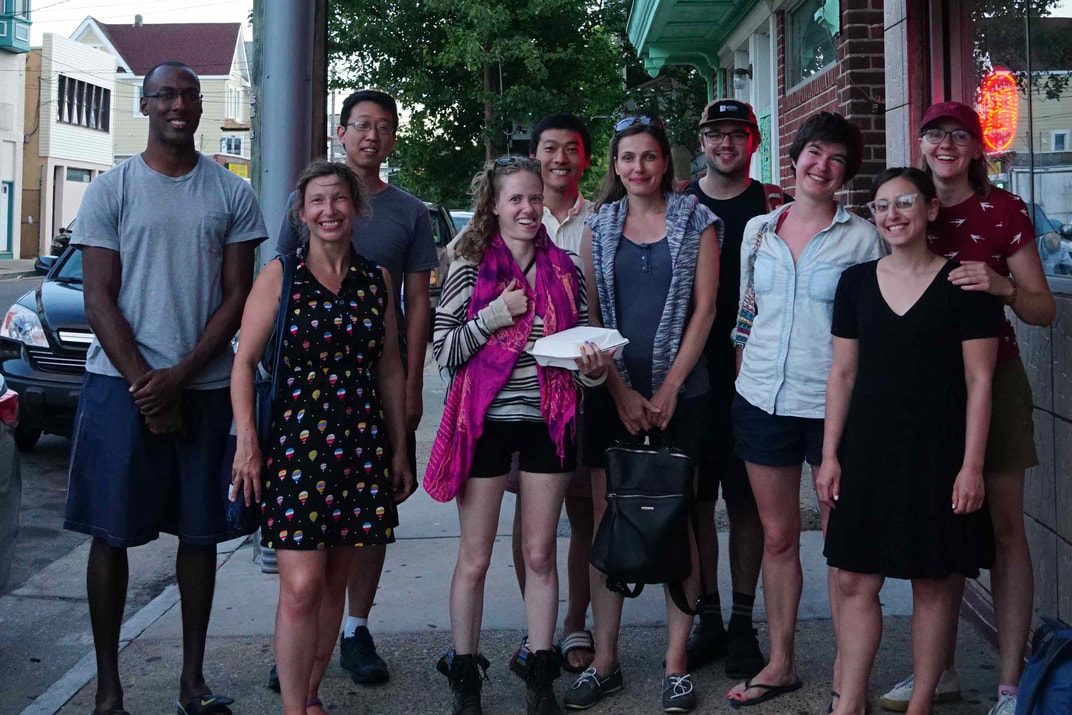
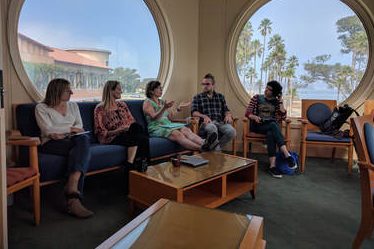
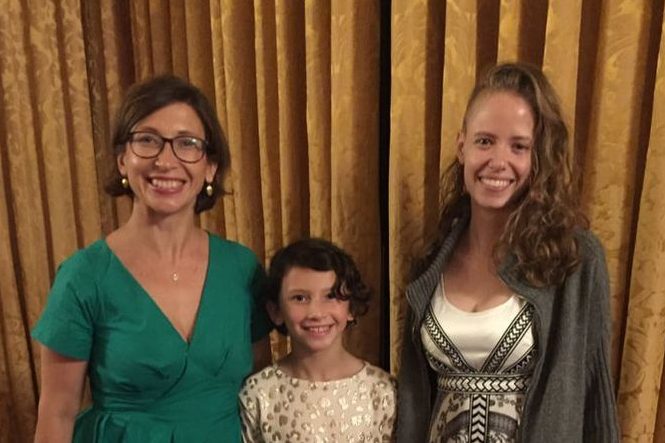
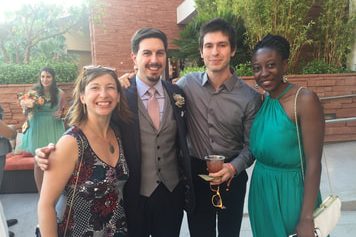
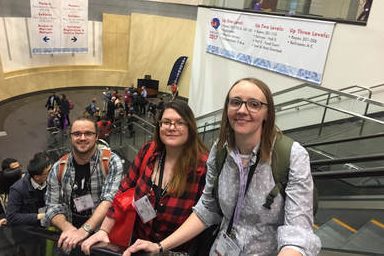
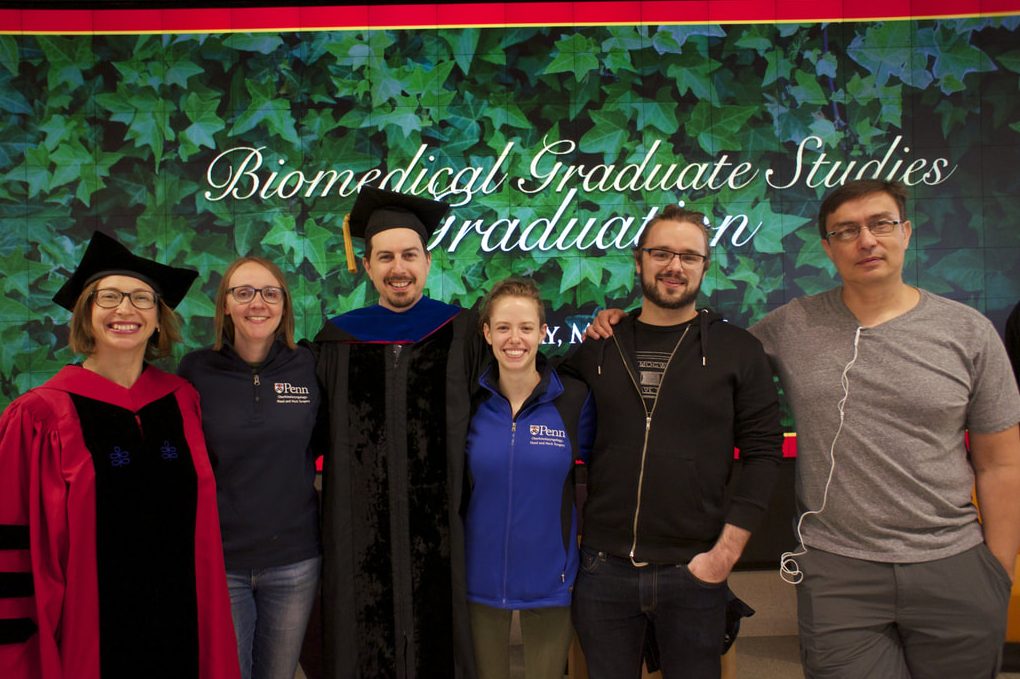
Linda Garami, Ph.D.
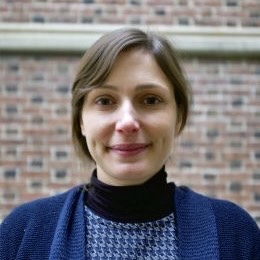
Then: Post-doctoral Fellow
Now: Scientist, Central European University
Ph.D. Eovos Lorand University, Budapest, 2016
Masters cognitive psychology, Eotvos Lorand University, 2010
Dr. Garami is studying the neuronal code for regularity and violations of expectation in audition. She uses in vivo electrophysiology to record from neurons in the auditory cortex. Varying the stimulus statistics she tests how the AC adapts to predictable environment and processes auditory patterns of different complexity. Her background is in cognitive neuroscience, she tested infants’ language acquisition using EEG as a graduate student at the Hungarian Academy of Sciences, then speech in noise processing and short-term auditory memory in older adults in Toronto under the supervision of Dr Claude Alan. Her motivation for switching to animal models was the better localization capacity, that is essential to better understand the contribution of AC to complex auditory stimulus processing. Her interest includes identifying the similarities and overlap between the mechanisms of auditory and visual pattern processing and sensory generative models. Dr. Garami is wrapping up her project in the lab as she is developing a computational sensory project at the Central European University.
Christopher Angeloni
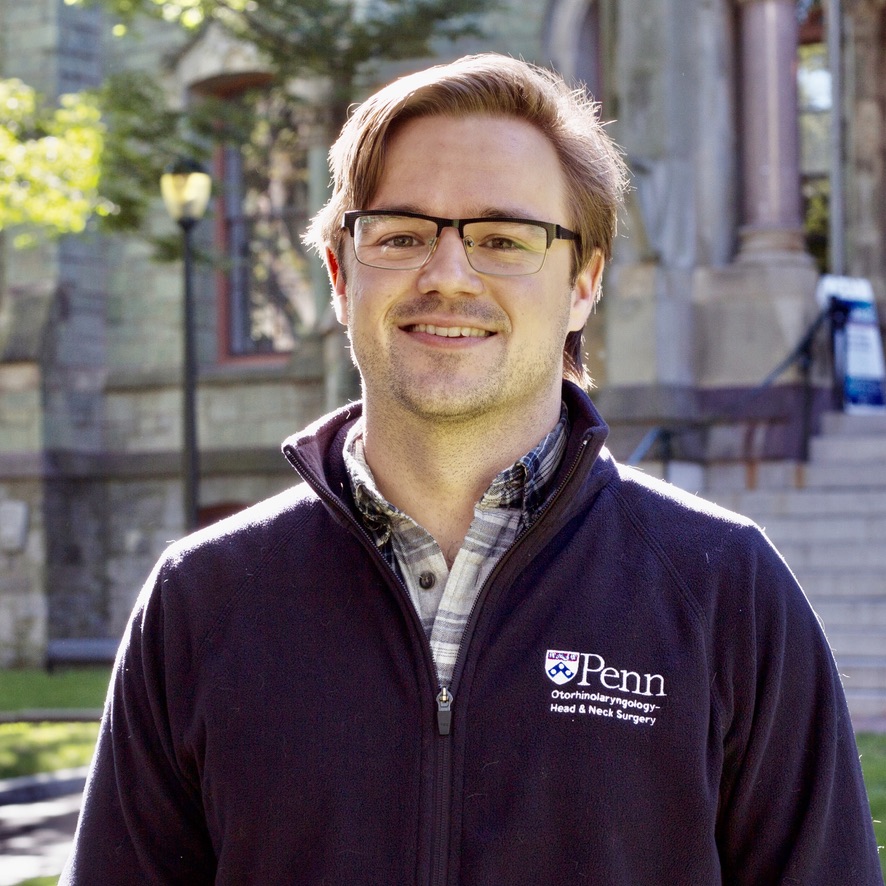
Then: Ph.D. student, Psychology Graduate Group
Now: Postdoctoral researcher at Northwestern University
B.S. Lafayette College, 2012, Neuroscience
Chris’s thesis work focuses on how efficient codes in the auditory cortex affect how we hear sounds. More specifically, Chris is studying a form of efficient neural adaptation to acoustic variability, called contrast gain control, and testing how this phenomenon alters the way mice hear sounds in noise. To get at these questions, he uses a combination of operant behaviors, chronic and acute electrophysiology, computational modelling, and various methods for causally manipulating neural activity. Chris became interested in neuroscience during my undergraduate years at Lafayette College, where he majored in Neuroscience (BS) and Art (BA) and studied non-invasive brain-computer interface technologies. He then expanded my experimental skills as a research assistant in Frank Tong’s visual neuroscience lab at Vanderbilt University, before coming to UPenn for graduate school. In his free time, he makes art, beer and ride/work on bikes.
Aaron Williams
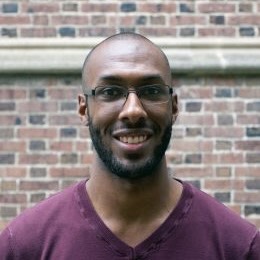
Then: M.D.-Ph.D. student, Neuroscience Graduate Group
Now: Resident, Neurology, University of Pennsylvania
B.A. Stanford University, 2015, Human Biology
Aaron is an MD-PhD student the lab, doing his thesis work on audiovisual integration. Specifically, he uses electrophysiology to study how the primary sensory cortices respond to simultaneous audiovisual cues, and uses optogenetic and tracing techniques to understand the circuits that support this process. After medical school, Aaron is interested in specializing in neurology. He is originally from Virginia, and he went to Stanford for undergrad. Outside of lab he likes to play basketball and chess.
Melanie Tobin, Ph.D. she/her
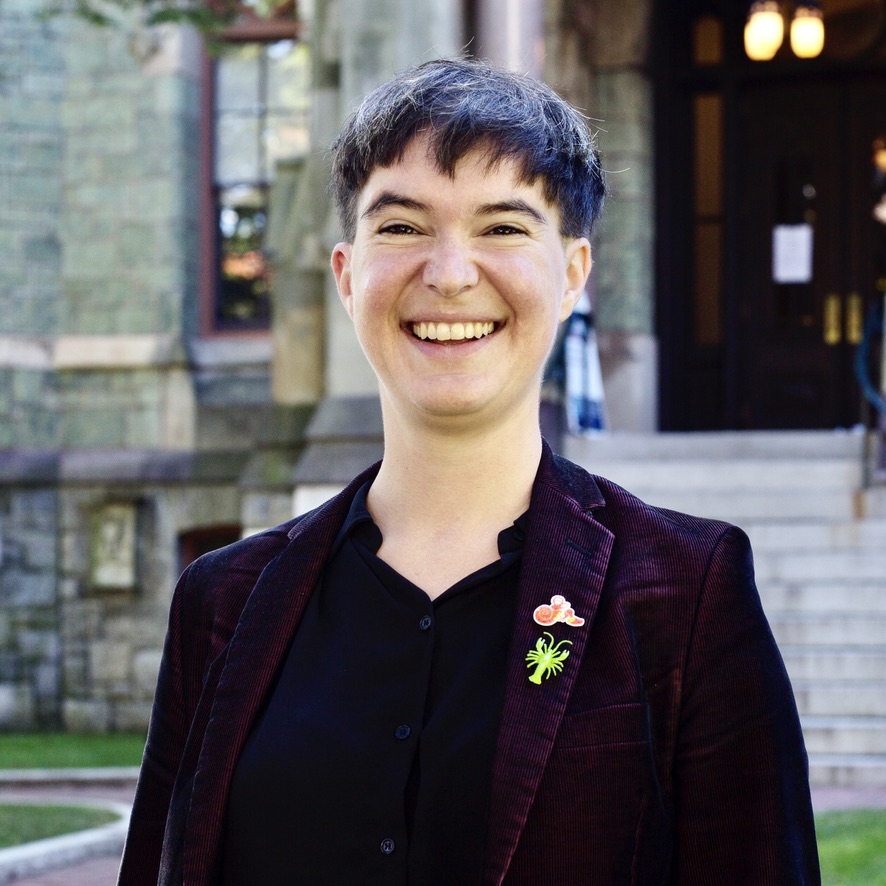
Then: Post-doctoral Fellow
Now: Paris, France
Ph.D. Institut Curie, Paris, 2016
Master 2 ENS Ulm, Paris, 2012
License and Master 1 in Physics, ENS Cachan, 2011
Dr. Tobin is a postdoc in the lab and arrived in January 2018. She studies how neural networks process sounds in Auditory Cortex, and more particularly the role of interneurons within these networks. She uses two-photon imaging in the mouse Auditory Cortex to record neural activity from hundreds of cells at a time and combine this with optogenetic stimulation of subtypes of interneurons. She can then compare how the network’s response to a sound stimulus changes when subtypes of interneurons are optogenetically activated, looking from a single-cell scale to the network scale. Dr. Tobin’s background is in Physics, which she studied at ENS Cachan in France, and she then continued on to a PhD in Biophysics on the mechanical properties of mammalian hair cells at the Curie Institute in Paris. Outside of the lab Dr. Tobin’s main activities are dancing, playing music, exploring and socializing, and her less common activities are arts and crafts, hiking and eating cheese.
Barrington Bucknor

Then: Research Technician
Now: Research Coordinator, CHOP
B.S. University of Syracuse, Biochemistry and Neuroscience, 2021
Barrington is a Lab Technician who joined the lab in 2021. At Syracuse University he worked alongside Dr. Castañeda focusing specifically on ‘Using the Hofmeister Series to determine the molecular basis of ALS-linked UBQLN2 liquid-liquid phase separation.’ With our group he is studying the role of amygdala-thalamic projections in auditory behavior. Outside of the lab, he is an active runner and a television binger. He hopes to purse an M.D. later in his career.
May Xia
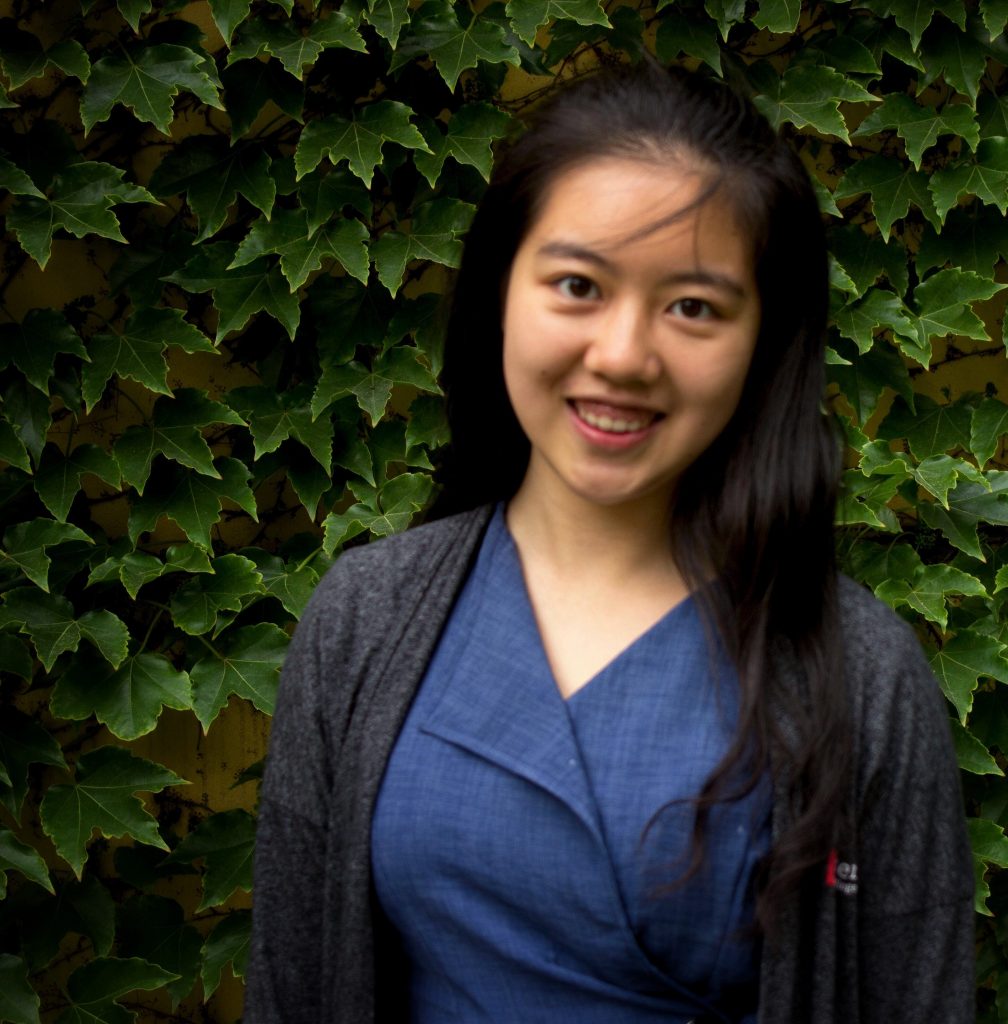
Masters Student
Current: Master’s student, Bioengineering
B.A. Wellesley College, 2021, Neuroscience
May graduated from Wellesley College, where she majored in Neuroscience and minored in Music. Her first research experience was developing micro-invasive multichannel dopamine sensors with Dr. Helen Schwerdt, and through this experience she became interested in studying engineering and applying it to neuroscience research. She is currently working with Jared to investigate the neural mechanism for hearing under uncertainty. In her free time, she enjoys playing the piano, curating playlists on Spotify, and visiting art museums.
Violet Tu
Then: Research Technician
Now: M.D.-Ph.D. student, Duke University
Before then…
Ryan Natan, Then: Ph.D. Neuroscience, Now: Post-doctoral Fellow, UC Berkerley
Jennifer Blackwell, Then: Ph.D. Neuroscience, Now: Neuroscience Education Program Manager, Brown University
Mark Aizenberg, Then: postdoc, Now: research associate, CHOP
Youngmin Park, Then: postdoc, Now: Assistant Professor, FSU
John Briguglio, Then: Ph.D. Physics, now: research scientist, Janelia HHMI
Laetitia Mwilambwe-Tshilobo, Then: research technician, Now: postdoctoral researcher, University of Pennsylvania/Princeton University
Karmi Oxman, Then: research technician, Now: Ph.D. student, Drexel University
Winnie Rao, Then: research technician, Now: M.D. student, Drexel University

